#love the contrast between the aggression and desire for revenge
Explore tagged Tumblr posts
Note
An under rated skill of goku's is his general awareness. Generally speaking, he's very good at noticing power. That's why when he lets his foes reach full power (like Frieza) he's the one who clowns them, unlike Vegeta who gets clowned whenever he does that.
With that in mind, it's very fitting that he knows Instant Transmission. It's a skill whose fundemental requirement is being able to sense the strength of others
It's worth noting that Vegeta and Goku's situations there are starkly different - though not as much as you might think.
Frieza up to that point has been so courteous as to provide a running tally of how much ki he's using at a given point.

Goku can make a confident assumption of what 100% Frieza will look like because he's already experienced 50% Frieza. Nonetheless, Goku's motives were the same as Vegeta's all the same.

Like Vegeta, Goku was drunk on Saiyan battle-lust when he decided to both a) let Frieza power up to 100% and b) remain on Namek while everyone else was being whisked off to the safety of Earth. Though Goku's battle-lust was also driven by a desire for revenge.
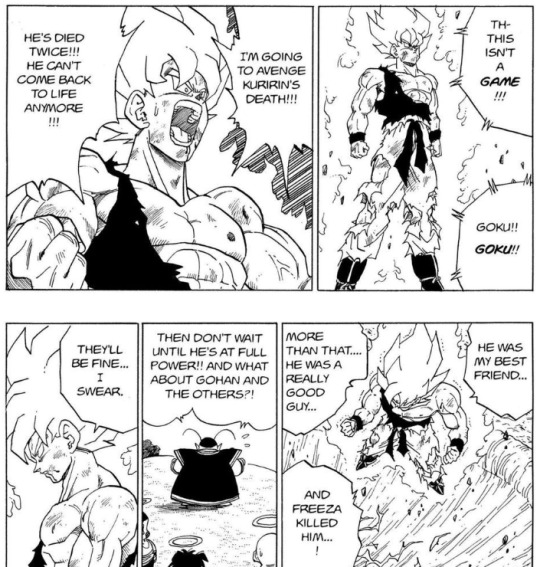
But, as Kaio points out, the battle-lust of the Super Saiyan's taken hold of Goku's senses. Given the choice between revenge and a fight, Goku's more interested in the latter.

By contrast, at the time Vegeta made this boneheaded decision:
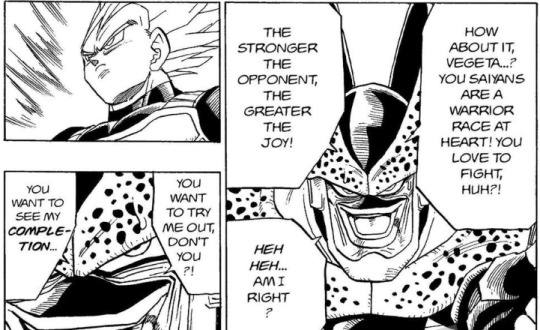

Nobody had any idea what Perfect Cell would be like. Not even Cell.
Notably, both Goku and Vegeta at their respective times were also channeling the Super Saiyan, which - as Kaio noted above - includes among its effects heightened aggression and impaired decision-making.
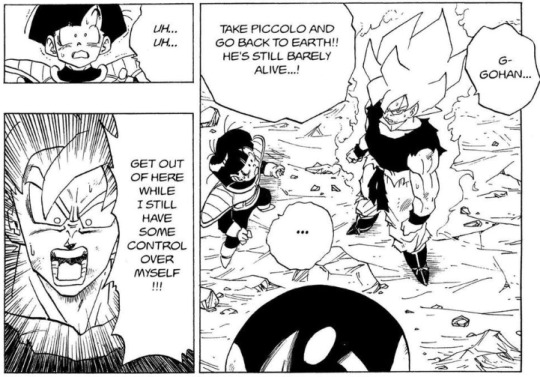
After being told multiple times that the Super Saiyan is a hyper-aggressive ultra-warrior, Goku finally had the chance to experience it on Namek. His assessment was "Gohan needs to leave before this form makes me do things to him too."
In an ironic twist, we even see the arrogant cruelty of the Super Saiyan intermix with Goku's own pleasant demeanor in the form of the cruel mercy he offers Frieza.
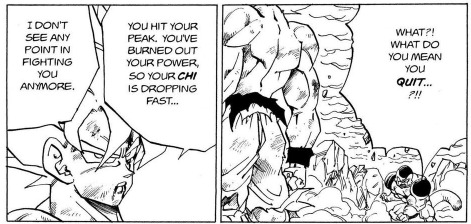
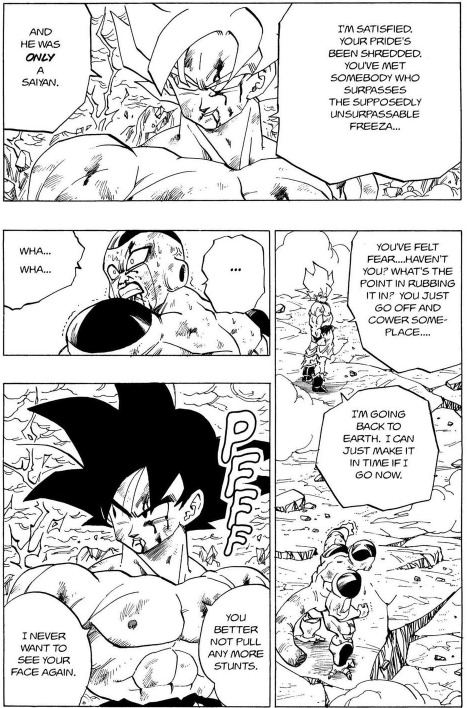
Goku's never cared about shredding someone's pride before. He's in it for love of the game. He just wants a good fight.
But here, he's like, "I've broken your spirit, your body, and your will. Run off and cower under a rock and spend the rest of your life agonizing in terror about your pathetic inadequacies, you useless trash mongrel."
He doesn't even want Frieza to train up and come back to fight him again like Piccolo and Vegeta; He's legit telling Frieza to go wallow in defeat. And that's. Just. Not how Goku talks to people he's beaten. Super Saiyan Goku is a very sore winner.
Letting Vegeta become a Super Saiyan is like getting a squirrel high on speed. He was battle-hungry and aggressive enough already, but now he's battle-hungry and aggressive squared.
Goku, for his part, worked hard on controlling this enhanced aggression. When Gohan first became a Super Saiyan, Goku tried to coach him through managing it as well.

This was part of the purpose behind Goku and Gohan's mastery of the state during their RoSaT training. After giving up on the idea of breaking the Super Saiyan's limits, part of the purpose behind mastering the Super Saiyan itself was to eliminate the enhanced aggression.
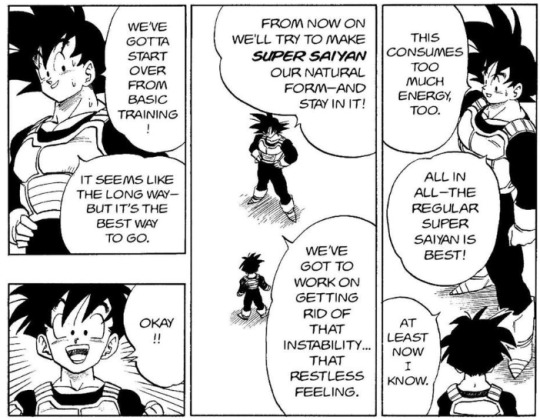
Get rid of the ki bleeding, get rid of the psychological byproducts, and normalize it so that it's as natural as their base states. There's even a cool visual effect you can pick up with it.
When a character turns Super Saiyan, their eyes turn sharp and angular to indicate their enhanced ferocity.

It's a look characters get when they're mad or focused, but the Super Saiyan always looks like that. Even when contemplative or scared, a Super Saiyan looks pissed as hell.
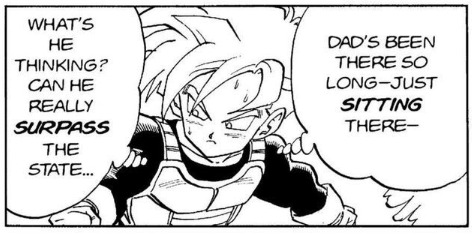
But once Goku and Gohan master the state, they're able to have gentler, rounder eyes in this form even while they keep the angular Super Saiyan eyebrows.

This is a man who is no longer resisting a compulsion to start throwing hands at everyone in the immediate area. The Super Saiyan answers entirely to him now, with no drawbacks.
...but when Gohan's rage boosts mix with the ultra-fury of a limit-broken Super Saiyan to form Super Saiyan 2, all of that bad decision making comes sweeping in again. The aggression...

...and the cruelty.

So. Yeah. Super Saiyan is a hell of a drug.
So far as Goku and Vegeta go, however, there is one other interesting point of comparison to be made. Against Frieza and Cell, they made similar choices, but their circumstances are admittedly a little different. Though it's worth noting that there is one other data point of interest.
For that, we turn to Majin Buu. Here, Goku and Vegeta make similar choices to forego Kaioshin's quest to thwart Majin Buu, instead choosing to have their long-awaited rematch with one another. Vegeta starts it when he throws a fit during Gohan's fight with Dabra, condemning this whole thing as a waste of time.
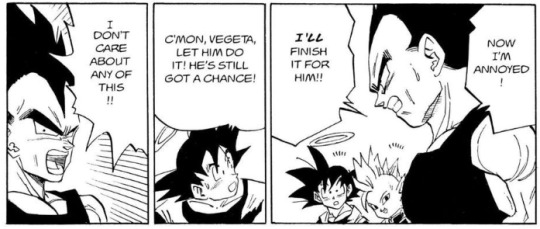
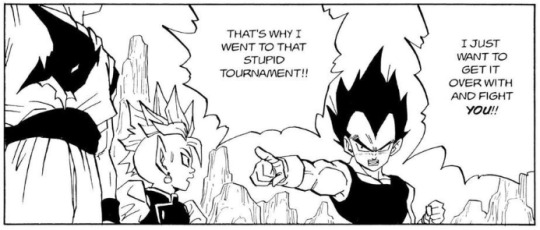
Borrowing the same power from Uranai Baba that once let his Grandpa Gohan face him in the ring of martial arts and say goodbye, Goku has a 24-hour reprieve from death so that he and everyone who loves him can have their closure. Appropriately, he chose to spend it at the Tenkaichi Budokai - before all this Kaioshin nonsense happened.
For Vegeta, this meant an opportunity to face Goku in the Tenkaichi Budokai. To have one last chance to truly surpass his rival, rather than living with the uncertainty of never measuring up to a gravestone. And all of this nonsense is denying him that.
But it's not quite so innocent as "I want one last fight with my rival." Vegeta wants to win that fight. By his own later admission, the hissy fit he throws here is a ruse meant to attract Babidi's attention. He's seen firsthand that Babidi can bring out incredible power and cruelty from people, and wants Babidi to fix him.
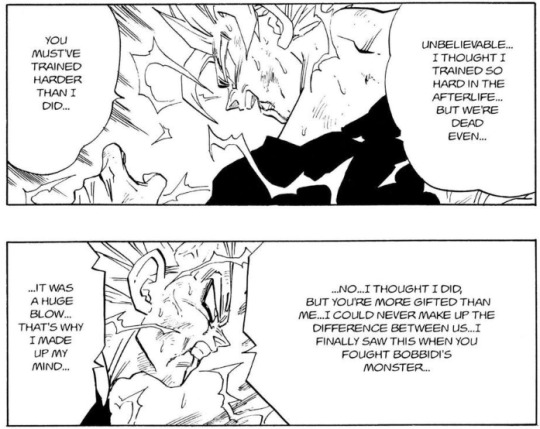
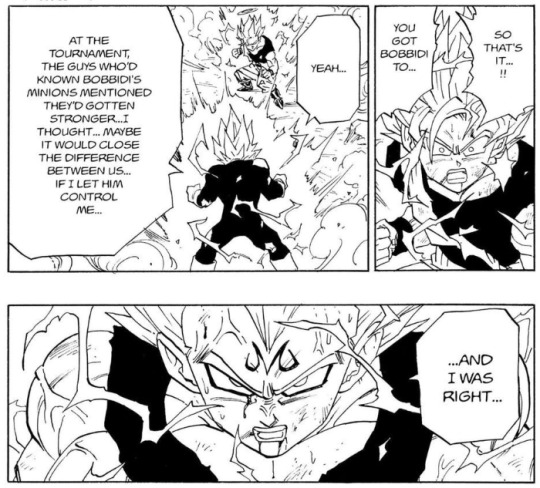
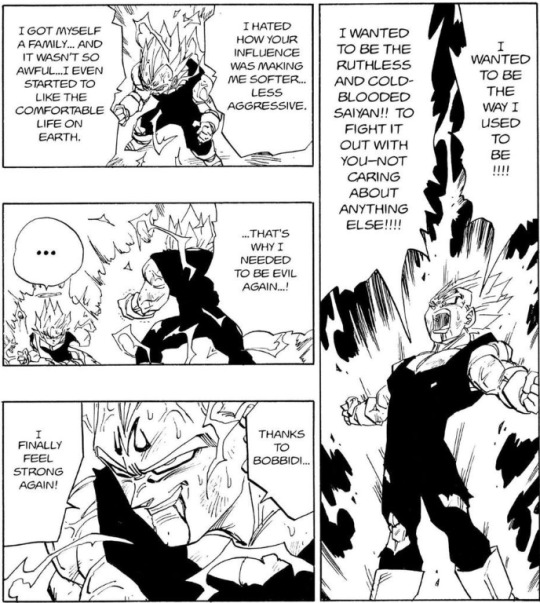
Vegeta wanted this fight. And he wanted to win it. He wanted to be the version of himself that could win it. Nothing else mattered.
As for Goku? Well.
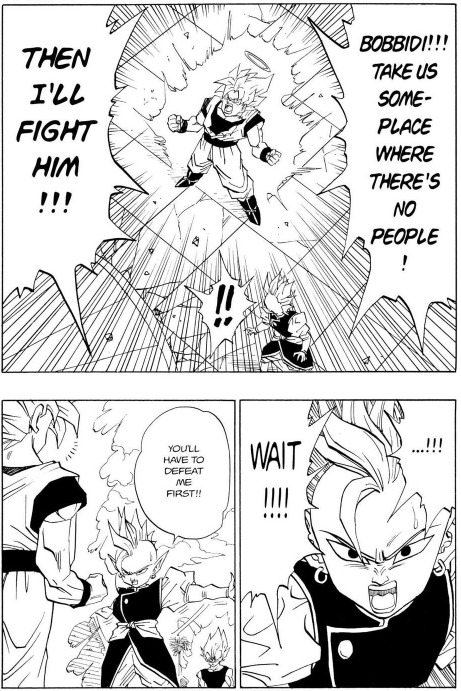
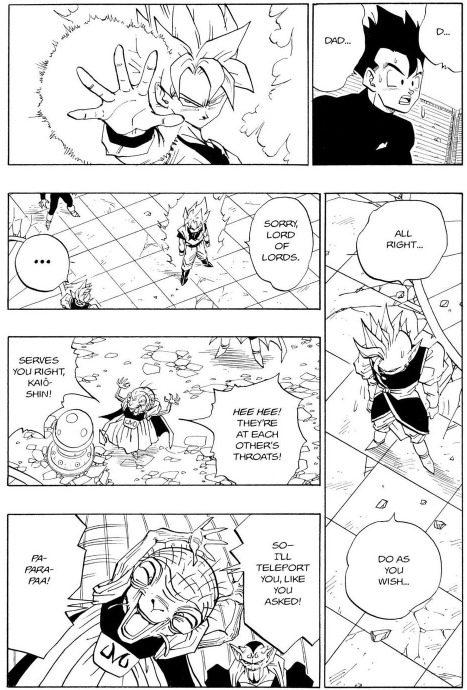
Goku wants this fight too. Kaioshin pleads with Goku, telling him that he'll have to go through him. Goku accepts those terms and intimidates Kaioshin into surrendering and letting the fight happen.
Goku, notably, does still care about thwarting Buu. He sends Gohan and Kaioshin off to deal with that while he faces off with Vegeta. Goku is a complicated man. He wants good things for people and to have thrilling battles, and when the fists begin flying, he's visibly having the time of his life.
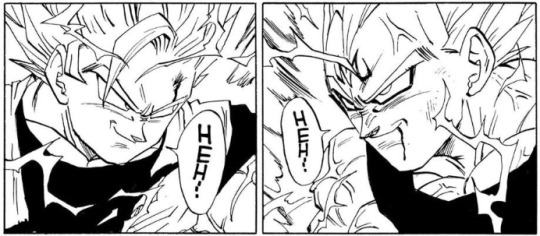
He just. He thinks they can afford to get away with this. Neither Goku nor Vegeta takes the threat of Majin Buu seriously. This much was evident when they started playing Janken to decide who fights Babidi's minions in the first place.
As Vegeta explains once Buu does awaken and they do start to sense his ki:
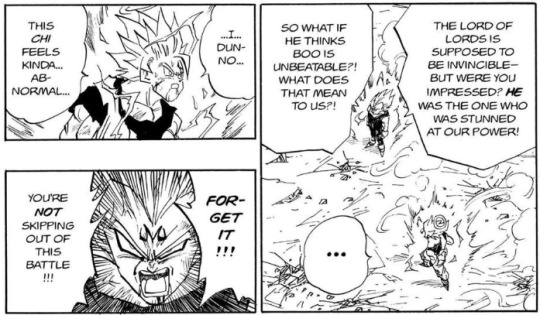
Goku and Vegeta are powerful beyond even the reckoning of the highest gods at this point (pre-DBS). And so even when Kaioshin begs and pleads with them to take this seriously, that Majin Buu is truly dangerous, his words fall on deaf ears.
Goku takes it more seriously than Vegeta does. He starts this fight insisting that he's going to go Full Power against Vegeta from the get-go to try and end this as fast as possible.
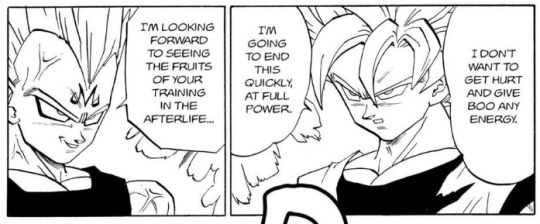
But he still plays along. He's been playing along.
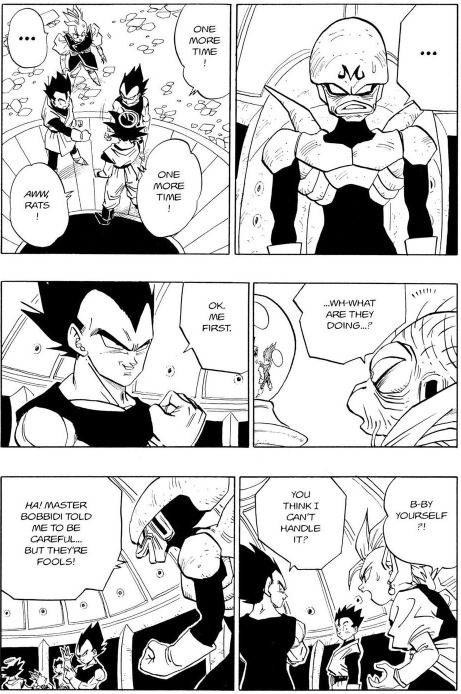
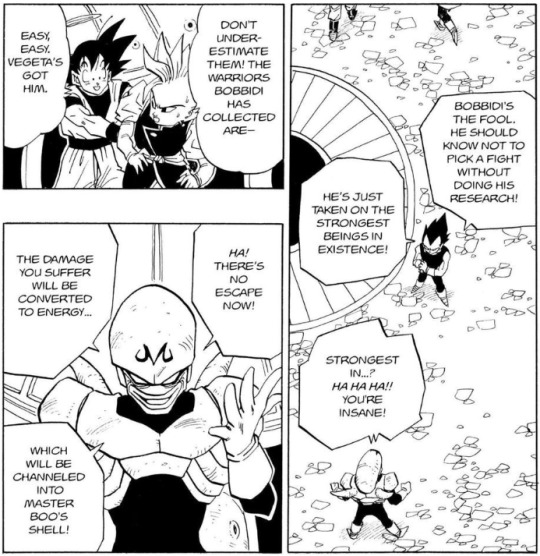
This is the tragedy of the early Buu arc. Neither of them really cared about thwarting Majin Buu. They just. Assumed they could handle it. Because they were so powerful that they made everyone Kaioshin was intimidated by look like jokes, and they expected no different of Buu.
Just like with Frieza. Just like with Cell. At least they're consistent.
83 notes
·
View notes
Text
Crescent Resurgence
Pairings: Older!Remus Lupin x Reader
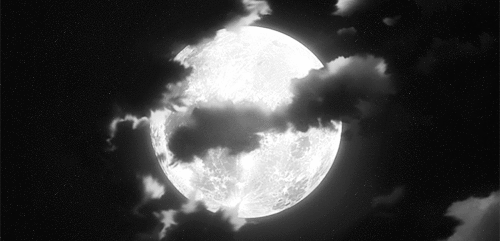
Bitten by Remus Lupin after an attempt to comfort him many years ago, you are left to navigate the challenges of lycanthropy alone. The resurgence of Voldemort brings you back together in the Order of the Phoenix, forcing Remus to seek redemption after all those years.
Warning: Angst. Slight comfort?
____________________________________________________
The night hung heavy with the weight of secrets and regrets as the moon cast its silvery glow over Grimmauld Place. For fifteen years, Y/N had lived in the shadows, mastering the art of solitude and survival. The scars, both physical and emotional, bore witness to a life shaped by the bite of a werewolf, and the absence of the one who had inflicted the wound.
The transformation was always a dance with pain, but that fateful night, a month after the tragic events that had torn apart their world, it became a brutal confrontation with the demons that lingered within Remus Lupin. Y/N, in her panther form, had watched over him, determined to be the support he so desperately needed. Yet, the trauma of loss had rendered him careless and hostile. In a moment of unbridled aggression, he bit her, causing her panther form to shift back into a vulnerable human.
Acceptance of death had washed over Y/N as she slipped into unconsciousness that night, only to awaken the next morning in a haze of agony. Survival instincts kicked in, and she learned to navigate the torment of lycanthropy on her own, crafting a modified Wolfsbane potion that not only eased the pain but hastened the healing process.
The rage within her burned like an eternal flame, fueled not only by the pain of the bite but by Remus's inexplicable disappearance. He was a ghost, a memory, and for years, Y/N wrestled with the love that refused to fade and the fury that refused to be silenced.
The Order of the Phoenix, in its desperate search for allies, found Y/N. Moody tracked her down, relentless in his pursuit of warriors. Driven by a desire for revenge for the friends she had lost, Y/N agreed to join the cause. The journey led her back to Grimmauld Place 12, a place steeped in memories both bitter and sweet.
Sirius Black, alive and well, greeted her with open arms. The warmth of his embrace contrasted sharply with the chill that swept through her when she saw him – Remus Lupin. More scars adorned his tired face, his hair graying, and a visible weariness etched into his being. He was a reflection of the years they had spent apart, the years of silence that screamed louder than words.
The meeting began, a gathering of familiar faces and strangers bound by a common enemy. Harry Potter, the spitting image of his parents, entered the room, and Y/N couldn't help but marvel at the echoes of a past that seemed simultaneously distant and achingly close.
As the meeting concluded, Y/N made a swift exit, her heart pounding with a mix of emotions. The night air offered a temporary reprieve, but Remus followed her outside. The tension between them crackled like electricity as words, long unspoken, spilled into the air.
"You left without a word," Y/N accused, her voice steady but laden with years of hurt.
Remus, a shadow of his former self, nodded solemnly. "I couldn't face you. I couldn't face what I had done to you."
The confrontation escalated, a whirlwind of accusations and admissions. Remus, burdened by guilt, conceded to the pain he had caused. Y/N, refusing to be swayed by words alone, stood her ground, her heart torn between love and resentment.
"I will never forgive myself for the pain I've caused you," Remus confessed, his eyes reflecting the depth of his remorse.
A heavy silence hung between them before Y/N, her voice edged with sorrow, admitted, "I loved you. I never wanted to be apart."
The admission hung in the air, a fragile bridge between past wounds and uncertain futures. Remus, understanding the gravity of his sins, asked the question that loomed over them both. "Do you still love me?"
The answer, honest and raw, escaped Y/N's lips: "I don't know."
A nod passed between them, a silent acknowledgment of the fractures that time had failed to heal. Remus bid her goodnight, his figure disappearing into the shadows of Grimmauld Place.
_______________________________________________________
Weeks passed since that night and Y/N found herself standing alone in the courtyard of Grimmauld Place, a burdensome storm of emotions raging within her. The confrontation with Remus reverberated through her mind, and the weight of uncertainty pressed heavily on her chest. Sirius emerged from the dimly lit entrance, concern etched on his face as he approached her.
"Y/N," he said, his voice low and empathetic. "I know that seeing Remus again is difficult. He's been through a lot, and so have you."
She looked at Sirius, gratitude flickering in her eyes. "It's just… it's been so long, and I thought I had moved on, but seeing him again brought back everything."
Sirius placed a comforting hand on her shoulder. "You don't have to have it all figured out right now. Give yourself time."
Feeling a mix of gratitude and sadness, Y/N nodded. She retreated to a quiet corner of the courtyard, taking deep breaths to steady her racing heart. The night air was cool, but the turmoil within her was hotter than any flame. It was a blend of love, resentment, and the jagged edges of memories that had never quite faded.
As she stood there lost in thought, Remus emerged from the shadows, his footsteps hesitant. He approached her, his eyes reflecting a myriad of emotions. Y/N steeled herself, preparing for another round of the emotional storm that seemed to follow him.
"I… I know I hurt you," Remus began, his voice filled with regret. "I can't change the past, but I want to make things right. If that means staying away, I'll do it. I just… I can't bear to see you in pain because of me."
Y/N met his gaze, her eyes a mixture of sadness and determination. "Remus, you don't get to decide what's right for me anymore. I've spent years learning to live with the consequences of your actions, and I've become stronger despite it all."
He sighed, a heavy acknowledgment of the truth in her words. "I never meant to leave you alone, to make you bear this burden on your own."
"And yet you did," Y/N replied, her voice firm. "You left without a word, and I had to learn to survive without you."
Remus ran a hand through his graying hair, a gesture of frustration and remorse. "I understand if you can't forgive me. I don't deserve it."
The air was thick with tension as Y/N considered his words. "Forgiveness is a process, Remus. It's not something that happens overnight. I need time to figure out what this means for both of us."
He nodded, a silent acceptance of the reality they faced. "I just want you to know that I never stopped caring about you."
Y/N looked away, a mixture of sadness and longing in her eyes. "Caring is not enough, Remus. I needed you to be there for me, and you weren't."
The conversation lingered, suspended in the night air like the unspoken words between them. Eventually, Y/N turned away, her resolve unwavering. "I need some time alone. Don't follow me."
Remus watched her retreating figure, a heavy heart filled with remorse. The courtyard remained silent, shadows playing on the stone walls, as both Y/N and Remus grappled with the ghosts of their shared past.
Days turned into nights, and Y/N navigated the war-torn world with a heart heavy with conflicting emotions. The Order of the Phoenix, bound by a common purpose, continued their fight against Voldemort's forces.
One day, as she stood by the fireplace at Grimmauld Place, watching the flickering flames dance, Remus approached her. The lines on his face spoke of battles fought, both internal and external.
"Y/N," he said quietly, his gaze searching hers. "I've been thinking a lot about what you said. I understand that I can't change the past, but I want to be there for you now. If you'll let me."
The room fell silent as Y/N considered his words. She saw sincerity in his eyes, a glimmer of the Remus she had once known. The wounds of the past still lingered, but perhaps, in the midst of the war, there was room for healing and reconciliation.
#remus lupin#remus x reader#remus lupin x you#remus lupin x reader#remus lupin x y/n#older!remus lupin#older!remus lupin x reader
33 notes
·
View notes
Text
One Villainous Scene - Father and Son
The manga adaptation of Neon Genesis Evangelion is my personal favorite version of the story, and one of many reasons for that is the depiction of Gendo Ikari. During the climax of the series, one particular scene shared between Gendo and his son Shinji especially stands out, as it’s the moment the cold, remote Gendo finally opens up with how he truly feels.
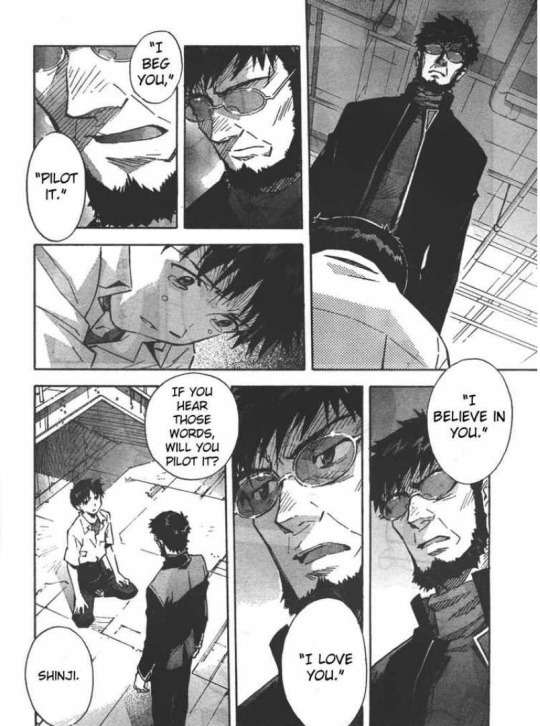
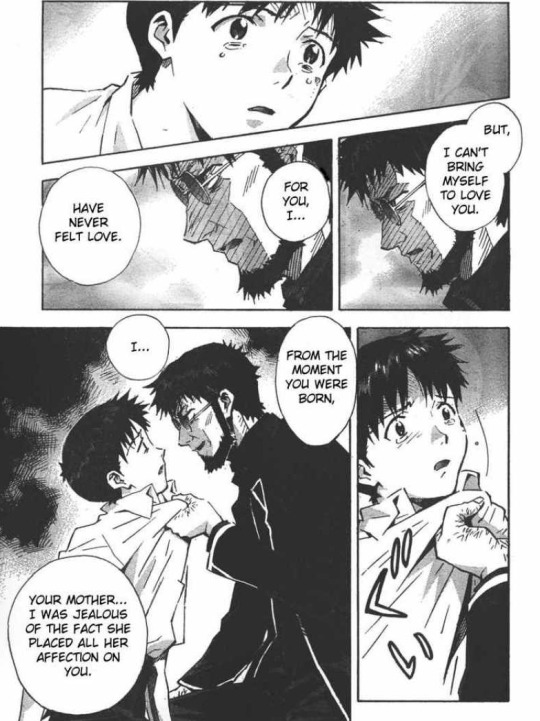
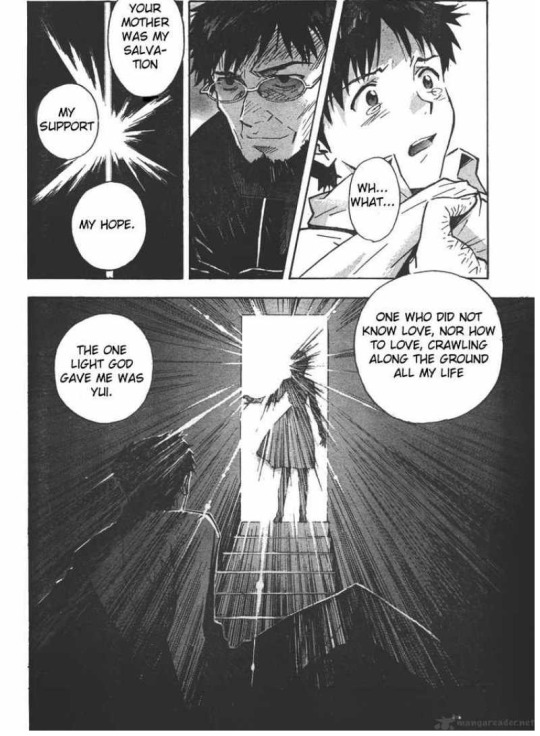
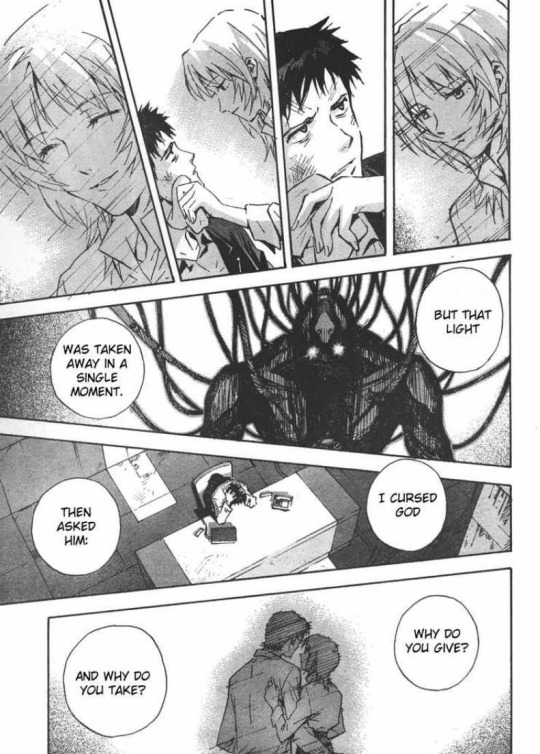
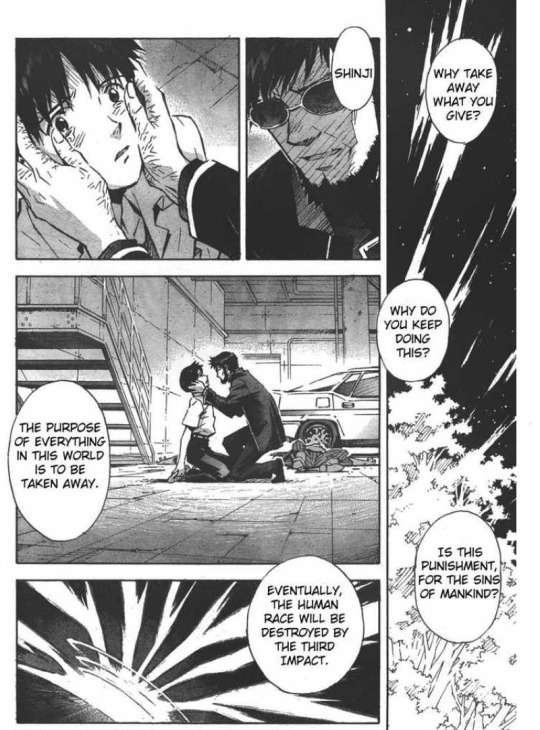
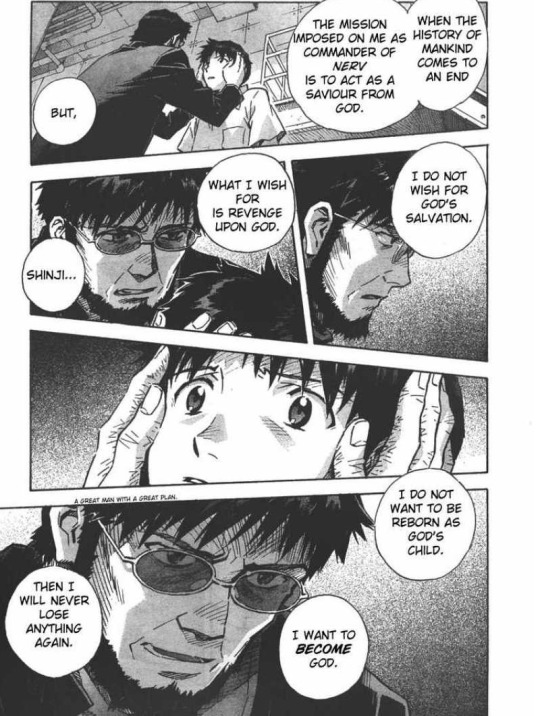
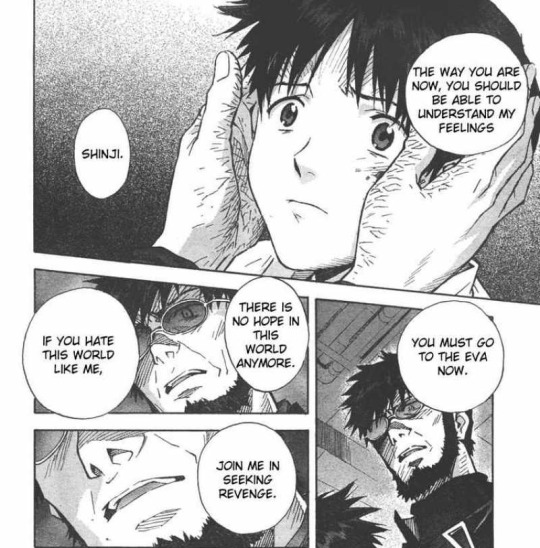
This scene encapsulates everything about Gendo and how twisted he is. When you get down to it, he���s really a lot like Shinji - growing up unloved by his father, leading him to develop his own deep sense of self-loathing, and he allowed himself to become twisted by it. Yui came into his life and her love touched him deeply, almost to the point where he could have gone down a better path....but only if he had let Yui’s love for him open himself up to loving himself. Unfortunately, he didn’t do this. He instead deified Yui, placing her on a pedestal and making his own emotional well-being entirely dependent on her and her love for him. This led him to become jealous of his own infant son when Yui began showing him more attention. And then it led him to madness once Yui disappeared; her soul sealed inside of Eva Unit 01.
Gendo’s own elevating of Yui as this light from God ended up boomeranging on him, as when he lost Yui he naturally turned to God when it came to finding someone or something to blame. And this led him down the rabbit hole of seeking revenge upon God...by hijacking SEELE’s insane, self-righteous plan for humanity and using it to ascend to godhood himself, thus becoming able to retrieve Yui’s soul and then rule over humanity by her side. Once Gendo is no longer a man, he will never have to fear losing anything again, he will never have to fear feeling hurt again. It’s horrifying. It’s evil. But it’s also understandable. That’s what makes Gendo such a great villain: you get why he came to the conclusion that he did even if you don’t agree with it, and you can’t deny that his villainy comes from a place of great inner pain. You hate him, but you also pity him. He’s not a monster; he’s all too human.
So much of his dynamic with his son Shinji also becomes apparent in this scene. “For you, I have never felt love”. These words can be taken at face value; Gendo’s attitude toward Shinji across the whole series certainly backs it up. However, how then do you explain his insistence at letting all of these feelings out at Shinji for the express purpose of making Shinji understand him? And beyond that, to get Shinji to join him in seeking revenge upon God and the world, and to ultimately reunite with Yui? If he just resents Shinji for hogging Yui’s love, then why bring him aboard this plan that would result in Shinji still receiving that love? And just look at his body language, which starts off aggressive but then becomes almost gentle, kneeling down alongside Shinji and softly holding his hands to both sides of his head.
Clearly, Gendo does love Shinji....or at the very least, possesses the subconscious desire TO love him, but his conscious self refuses to act upon it, since if he loves Shinji, what would happen if Shinji got taken away from him like Yui was? He’s too afraid of that pain to risk it. And that’s what makes him such an effective foil to Shinji, who ultimately overcomes this fear and understand that as imperfect as the world and humanity are, everything will turn out all right if you can engage with them from a place of self-love. Rather than aim to ascend to godhood, Shinji learns to be content just being a vulnerable human being. It’s a character arc that wouldn’t be nearly as effective without Gendo to serve as a dark and tragic contrast.
87 notes
·
View notes
Text
On Goro Akechi’s morals and forgiveness (character analysis, but also just a very rambly post)
Akechi is… a very interesting character, I have no doubt about this. Also my favorite of course, if you hadn’t figured that out yet by this giant text you’re about to read (sorry). I have a lot I want to talk about in regards to him since he is so intriguing and we actually don’t have that much info about how his thought process works so it leaves a lot of room for speculation.
In any case, in this meta in specific I’m going to be talking about Akechi’s...morality(?), forgiveness and his relationship with regret. I’m not sure if that’s the best word to define this but I’ll roll with it for now. I’ll try to be fair and talk about things as I personally see them, it’s totally fine if you don’t share my views! Now, onto the actual meta.
Starting off, as people are obviously aware, Akechi is a morally gray character, a darker shade of, but he’s a sympathetic and tragic character nonetheless. That much is undeniable, he was written to be sympathetic, even if I’d argue Atlus did a pretty poor job of it in Vanilla (he was still my favorite ever since then though lol) but he’s reached his true potential in Royal, which makes me immensely happy to see. I get so unbelievably happy whenever I see people saying Royal changed their perception of him and started to like him more! But even then, there are a lot of people who just can’t forgive him for what he did, and that’s only natural. I personally think that, if you don’t try to sympathize with Akechi and truly, truly try to understand his mind and history, you’re doing him a huge disservice. But, forgiveness is something that everyone is free to think and decide if he deserves it or not. In Akechi’s case, I feel like forgiveness is something much more personal to the player, and this shows between the Phantom Thieves too.
There is a visual novel I hold very close to my heart called Umineko no Naku Koro Ni (which I’ll be quoting relentlessly throughout this entire post) that illustrates what I think better than I could put into words, so I’ll be quoting that scene with a few tweaks for better context:
“You said you understood the culprit’s motive.”
“...Yes.”
“Is that motive… a satisfying explanation for why they’d [commit murder]?!”
“Who knows. That’s for you to decide. Even if I say it’s satisfying, that doesn’t mean it will satisfy you. …You have to decide that for yourself.”
I really like this. It reminds me a lot of Akechi’s situation. I firmly believe that this has no “objective”, “most correct” answer to, just your personal feelings, which are the most important. I, as a player, do forgive Akechi, I want him to have a happy ending, another chance at life, manage to live happily with Akira and have some fun for once. That’s what “forgiveness” means to me in this situation, but while some people may empathize with Akechi, they still can’t forgive him. They think he should stay forever in jail or die since he cannot be redeemed in any way in their eyes. Where do I wanna go with this endless blabbering you ask, and I respond, I just want to try and see Akechi’s actions through two different lenses.
Well, I personally don’t like downplaying the crimes he committed and dumbing it down to “he was being manipulated” because, even if this is not false, it is not entirely correct either. Akechi is so fun to speculate about because he’s a character who is always clashing against himself in various ways as if he was in a constant state of internal turmoil, and this is not very different.
Akechi himself made the choice to go to Shido. It is extremely unlikely that he didn’t know he was going to be using his new powers for murder. He may have been very young, but despite the fact that he was a child forced to mature prematurely, he knew exactly which type of person Shido was. When he walked into that deal he was aware of the consequences and had fully made peace with the fact that he’d be taking another person’s life. Now, I’m not saying that Shido never manipulated him because he did, but not with that particular choice.
This alone tells plenty about Akechi’s morals. I believe that Akechi indeed has some level of empathy for other people, but I sincerely doubt he feels especially bad about the Okumura-like people he had to kill. He might feel bad for the family of the victims or just feel nauseated with himself, however, he doesn’t regret a thing. As if he had grown numb to it. ...Until a certain point, that is, but I’ll talk about that later.
I would also like to elaborate further on Akechi’s continuous conflict with himself, and this particular piece of Maruki’s confidant immediately reminded me of this:
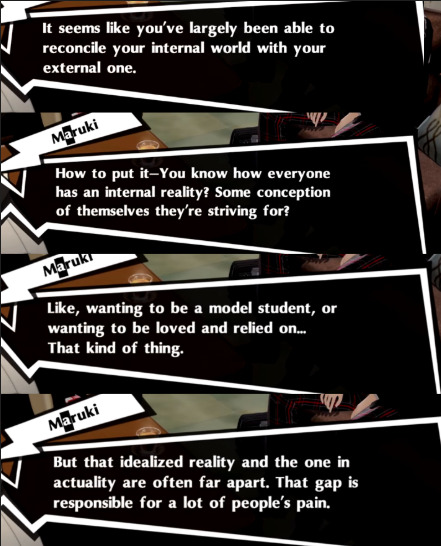
He’s talking about Akira here, but isn’t it interesting to note that Akechi’s internalized and externalized realities are, in contrast to Akira’s, the farthest they could possibly be from each other? His sense of justice, childlike desire to be loved and seen as a hero, in contrast to the cold-blooded murderer he had become? It’s like there are two people fighting it out inside of Akechi’s brain (lol) which must cause him a lot of distress. I don’t believe that Robin Hood is a ruse or that his Detective Prince façade is entirely fake. The way I see it, they are his ideal, which he strayed so far away from he lost grasp of who he himself is.
In my opinion, Akechi has never cared about fame the slightest bit, he used all of that as an opportunity to act out the person he wished he was, just and virtuous, while still being the feral murderer and bloodstained person he is today. These are two integral parts of him that he has never known how to reconcile. It’s interesting to note that in the third semester he was the one who since the beginning advocated firmly to return to the harsh reality but he had spent the entire game living in the comforting “detective prince” dream he made for himself until the engine room scene happened.
With the third semester context, the engine room becomes so interesting because that scene is akin to Sumire finding out she’s not Kasumi. It’s a cold bucket of water thrown straight to Akechi’s face and telling him to wake up from this lie he made to comfort himself and face reality: he is no hero. Despite the fact that he is, too, a victim, he is simultaneously a murderer who perpetuated with the cycle of his father’s aggressions and he cannot escape that fact. Worse, he was being manipulated all along and his revenge plan and arguably his only reason to live AND justification for his actions was completely crushed.
Once again, this Umineko scene illustrates what I think Akechi’s situation up until that point was like:

Akechi rationalized every awful, inexcusable thing he did as, “It’s for my revenge’s sake” and ran with it. He was incredibly blinded by his hate and ignored the weight of the consequences of his actions up until that point where everything came crashing down right in front of his eyes. There is no excuse and no justification for that.
However, Akechi was also abused himself. There is no excuse for what he did, but is getting back at the person who took everything from him so reprehensible a thought? Is wanting justice against someone who essentially ruined your life not understandable? Many people like to say “cool motive still murder” or things of the like, but I’m asking you again to put yourself in his shoes.
Yet AGAIN with a Umineko screencap:
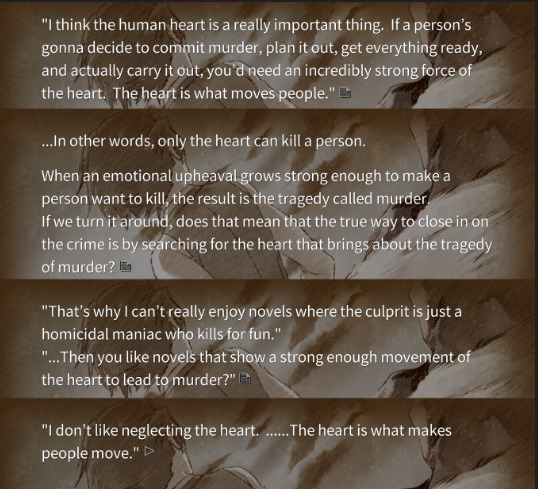
I played this the other day and one of the first things I thought of was Akechi. A lot of people draw parallels between Akechi and Adachi, but that’s just so damn wrong and make me lose my hair so much and become completely bald because that couldn’t be farther from the truth and I’m gently asking you to reconsider. In the pic above, Adachi would fit the “homicidal maniac” mentioned to a T, and while Akechi is by absolutely no means free of guilt and much less a stellar person, his crimes were moved completely by his heart.
For the people who use his choice to become Shido’s hitman to say Akechi does not deserve any kind of forgiveness and that he’s a murderous maniac, I ask you to at least think of what state of mind he was at that moment. Think very hard about it, imagine how completely bleak life must have looked like then, to the point that he risked everything on murder.
This is nothing more than my speculation, but I believe Akechi’s thought process at that moment was something along the lines of, “I have nothing to lose since my (current) life is completely meaningless". It was as if he had reached such a numb state he chose to forgo all his morals and humanity in pursuit of at least one thing that would give his life meaning, that being his hate for Shido, which I also think was the only emotion he ever truly understood well ever since his mom passed.
Since Akechi is all about conflicting emotions though, I would also like to remind you how vulnerable Akechi really is to any kind of affection. His “childlikeness” that Robin Hood represents was, by all accounts, still there. Akechi has a desperate need to be loved while simultaneously putting up walls and wearing masks, making it extremely difficult to have any kind of meaningful relationship. This is something that Shido thoroughly takes advantage of, too.
That’s also why one of his lines to Akira hit so much harder for me, following this reasoning. “If only we had met a few years earlier,” expresses many emotions at once. If Akechi had known something other than misery and hatred during that period of his life he would not have latched so thoroughly to that revenge plan. Akechi simply had nothing to lose, since he had nothing at all.
I mentioned earlier that Akechi doesn’t regret a thing, which I still think it’s true. Before he had met Akira, he truly did not regret a thing, but meeting Akira caused him a lot of strife because not only Akira is a person whose whole existence flaunts everything Akechi could have had if he hadn’t fallen into fate’s trap, but Akechi also experiences happiness through his connection with Akira. Hanging out and talking to him truly makes him happy, and it’s something more genuine than he’s ever known. Yet, it’s too late, because his choices were already set in stone and he had already pulled the trigger with no way to take any of the bullets back.
That’s why Akechi is so confusing, so controversial and sometimes uncomfortable to think about. There is no clear line between good or bad, he just is something in the middle. Akechi is both a person who ruined a lot of people’s lives with no regard whatsoever to the consequences but also a victim rebelling and retaliating against the person who took everything from him and made his life a living hell. That’s why it’s so hard for not only some players to form opinions about him but also downright uncomfortable for the Phantom Thieves to think about. There is no objectively best answer for what he deserves. It just doesn’t exist. Should he spend the rest of his life in jail, or dead, because his crimes were inexcusable? Or should he be given another chance at life to learn to be happy? It’s entirely subjective, and that’s why he’s so great to think or discuss about.
Aaand that’s it, I’m grateful you read so far, hope I didn’t piss anyone off, also not gonna pretend this wasn’t very self indulgent because of the amount of times I quoted Umineko in it. Anyways, thank you!
SIDE NOTE: I didn’t write this recently, it had been sitting on my drafts for some months now and I found it again today and decided to just release it into the wild because why not? I think this was meant to be much longer than it is and to elaborate more eloquently on a lot of points I brought up (like the PT with Akechi) but alas, I lost the train of thought and so it Perished.
133 notes
·
View notes
Text
Under the Skin (2014) - Review
For a lot of science fiction movies, I find myself enjoying the ideas of the film more than I think I actually enjoyed the film. It’s what I’ll refer to as the Annihilation-syndrome, named after the 2018 movie that I found to be an absolute bore while also being an exceedingly intellectually stimulating discussion about the nature of cancer, mutation, and biology in general. The film I am reviewing now, 2014’s Under the Skin, honestly is nowhere near as unenjoyable as Annihilation, but I mention the film because I think much of this review will focus on the really interesting ideas this movie brought up which might make you think I thought this is a masterpiece. It’s not. It’s good, very good even, but not as good as its theme and ideas.
A lot of my restrained enthusiasm has to do with the fact that the film is purposefully cryptic and full of esoteric imagery. While there are spoken parts, I don’t think much would be lost if we couldn’t hear what was being said. That is to say, the dialogue doesn’t do much to make sense of what we are seeing displayed on screen.In fact, there are large sections of characters interacting without any dialogue, yet everything is understood.
To its credit, what we are seeing is largely very beautiful from a cinematography point of view. Much of the film takes place in the city of Edinbugh, Scotland and it captures well the urban grit of the city and how our protganoist fits well within that urban environment. The way the red lights of Edinburgh’s traffic lighst cast a foreboding, menacing band over the protagonist’s eyes as she drives about town on the hunt for men to ensnare in her trap shows that this dangerous character is right at home in the anonymity of the city.
The protagonist is played by Scarlett Johansson, who spends most of the film alternating between being the pinnacle of seduction in the eyes of the heterosexual male gaze and being a lifeless void. That’s because Johansson plays an alien (I think) or at the very least a humanoid being who seems to have the sole purpose of finding lonely men, taking them back to her lair, and trapping them in a sunken-place-like void where ultimately everything but their skin is extracted from them. I’ll henceforth refer to this character simply as “the humanoid” with she/her pronouns for clarity. We never learn the humanoid’s motivations, but we know that she’s not acting alone. She’s supported in her ventures by a (presumably) humanoid motorcycle gang who also double as agents who will clean up her messes.
At the beginning of the film, the humanoid appears to have no free will or consciousness. When she comes across her first dead body, she is more interested with the ant crawling along the body than the woman who used to inhabit that body. She simply steals that woman’s clothes, and begins acting out what seems like a pre-designed course for finding and trapping men. As soon as she has completed an interaction with a human, all of the emotion drains straight out of her face. Johansson’s face takes on a scary lifelessness on par with Billy Skarsgård’s Pennywise the clown from the It movies. There’s a scene where the humanoid, in the process of attracting a new victim, stumbles across an infant that has been abandoned at the beach and is screaming out. Perhaps the director is toying with audiences’ biases that the humanoid, appearing as she does as a human woman, will “naturally” want to reach out and save this baby. That she doesn’t seems to signal to the highest degree that this “woman” is no woman at all, but a cold, merciless something else.
Yet, somehow, by the end of this movie, I found all my sympathies lying entirely with this decidedly inhuman killing machine who makes her living preying on people just like me. This is because something happens that changes the humanoid about midway through the movie. Up to that point, it would be easy to classify the film as a feminist revenge fantasy, where men’s penchant for objectifying women and their aggressive desire to “conquer” women is met with a dish that is served so very coldly. It’s oddly satisfying to watch men who will blindly get into a car with a complete stranger and follow her into a creepy house just because they want to fuck her, end up being exposed as little more than skin around a bag of meat.
But then the humanoid comes across a man whose face deviates greatly from the norm due to some unnamed medical condition. It very much resembles the face of the protagonist from The Elephant Man. He is out an a walk at night to the grocery store. The humanoid doesn’t see him like the rest of the world does. She doesn’t understand how insensitive her genuine question about why he shops at night might be to him. In a darkly ironic sense, she’s the first person in his life to truly see him as a man and not a hideous monster. He has none of the arrogant sexual bravado like the humanoid’s prior victims. He’s sexually innocent, a virgin. When she offers to take him back to her place, he doesn’t take pride in any successful conquest. We see that he’s pinching himself just to prove that he’s not dreaming. It’s a heartbreaking sequence. Whereas we may have been on board, at least symbolically, with the humanoid’s cool takedown of the patriarchy, this particular abduction flips the script. Our sympathies lie more with the man than the “woman.”
Why he doesn’t succumb to the same fate as the other men is not clear. Notably, he’s the first we’ve seen that isn’t fully erect despite the humanoid ardent attempts at seduction. Secondly, he’s like the first to take some stock of the fact that he’s been lured into some black void from another dimension. He obviously finds Johansson attractive, but it’s almost like he is more amazed by what is happening, his penis “disarmed” so to speak, compared to those who came before him who were “armed” to conquer. And in lacking their sexual aggression, he was deemed to have a “lighter”, purer heart, preventing him from sinking into the deep of her trap.
This seems to change the humanoid. It’s as if she questions her whole purpose in life up to that point. Maybe all those men who had come before were as gentle as sweet as this one. Or maybe she yearns to be more than a monster.
Previously we had seen the humanoid stare at women from her car in much the same she looked at men, yet we never see her take women as a victim. It’s more like she was curious by these creatures, like she didn’t know they would be there. She shows the same curiosity towards her own body. She stares at it, hugs her curves. Just after her encounter with the man with the dysmorphic face, she looks long at her face in the mirror and then at a fly stuck to a window. It’s as if she’s looking at how she looks to others (humanoid) compared to what she really is (more like a bug, an alien). As the film goes on, it’s almost as if she’s trying to convince herself the skin is not a farce, that it’s really her, that she’s real, and that there’s nothing else under the skin. There’s an ironic beauty in the dysmorphic man wanting to be seen for what’s on the inside where she wants to be seen for her outside.
We subsequently see the humanoid undergo something of a coming-of-age as she flees into the more rural surroundings of the bogs of Scotland, presumably to avoid her motorcycle-driving allies who don’t want her to veer off course. The camera work in this part of the film highlights her as a stranger in this strange land, with her hot pink sweater standing in stark contrast to the drab Scottish milieu. And truly from the rocky/pebbly beach below the impossibly high bluffs at the ocean to the Mars-like desert shrubbery of the bogs, Scotland has never made Earth look so alien. Yet it’s in this foreign land, far from the trappings of the dirty city that the humanoid experiences the pleasure of being a human, or more specifically being a woman. For a few days she is even one man’s princess, and I think it confuses her so much that she enjoys it.
The genius of this film is the way it makes you forget that the humanoid isn’t actually human. In the latter half of the movie we celebrate her cautious steps towards humanity. There is a love scene that is among the most intimate I’ve seen filmed. Yet, we also fear for her and feel sorry for her when her fantasy comes crashing down and it is revealed to her and to us that her initial approach to men proves was much more appropriate.
This is a slow film that rewards patience, but ultimately it doesn’t do much to excite. There are abstract sequences of light and color accompanied by discordant sounds of chanting that seem straight out of the Jupiter sequence from 2001: A Space Odyssey. These do little more than confuse, and sometimes bore. And even if the lack of excitement is deliberate (perhaps intended to deconstruct female seduction) that doesn’t make it anymore enjoyable. Still, it is a beautifully shot picture that provides a stunning condemnation of our male dominated society. It would manage to make even the most bitter-hearted viewer feel sympathy for a humanoid who just a half-hour ago was on a cold-blooded murder streak. Still, even if it doesn’t introduce any hard-hitting questions about humanity like the best sci-fi, in the end it revels in a different dominant theme of sci-fi: no matter the monster man meets, man is always the ultimate monster.
*** (Three out of four stars)
6 notes
·
View notes
Text
Viddying the Nasties #36 | Butcher, Baker, Nightmare Maker (Asher, 1981)

This review contains mild spoilers.
Billy is sixteen years old and lives with his aunt. He has been living with his aunt since the age of three, when his parents were killed in a horrific car accident after their brakes failed. He is very close with his aunt. He loves his aunt. She loves him too. Maybe a little too much, given the way she eyes his body longingly and coos to him before he wakes. Billy wants to get a basketball scholarship and leave for college, but his aunt isn’t terribly keen on the idea. On his seventeenth birthday, Billy comes home to find his aunt having stabbed a handyman to death. She claims he tried to rape her, and that’s the story Billy tells the cops. Problem is, they don’t believe him. One cop in particular, upon learning that the murdered man was gay, latches onto a theory that the murder was motivated by Billy’s gay desires and spends the rest of the movie trying to nail Billy for the murder.
Butcher, Baker, Nightmare Maker was released during the first slasher wave but doesn’t quite fit the bill. There are a few murders but little ambiguity about who committed them or even much suspense leading up to them, at least in the usual stalk and stab sense. The characters’ relationships are drawn in some detail. Billy’s relationship with his aunt can be seen as unhealthy from the get go, but the way the movie handles this is quite clever. Billy’s aunt is not drawn as predatory or grotesque from the beginning, but rather maternal and comforting. Billy has grown up with this level of intimacy with his aunt, so it would make sense that he wouldn’t perceive it as unsettling, and it’s worth noting that the film’s visual language doesn’t change, at least early on, when shifting to his relationship with his girlfriend. There is not much female nudity in the film, in sharp contrast to most slashers, but Billy is often seen in varying states of undress, as if the movie is subverting the usual gaze prevalent in the genre to shift us unsettlingly into his aunt’s perspective.
There is a certain stylistic flatness in the movie that doesn’t create tension in obvious ways but does add to its psychodramatic impact. The director, William Asher, was a veteran of TV comedies (his resume includes I Love Lucy and Bewitched) and he gives the material here a jarring sense of camp, where the performances push against the confines of the visual style’s forced normalcy. Susan Tyrell’s performance as Billy’s aunt gives the movie a jagged kind of arc, aggressively comforting and familiar early on and deteriorating into more recognizable lunacy by the end. (It’s worth noting that one of the signs of her mental breakdown is cutting her own hair, which honestly didn’t look much worse than some of the haircuts I’ve had to give myself.) Also effective is Bo Svenson turning up the good ol’ boy image to sickening extremes as cop who can’t get out of the way of his own bigotry. I particularly liked the way the movie sketches the relationship between Billy and his gay basketball coach, and the movie to its credit never tries to sensationalize that angle, even from the sympathetic perspective of something like Nightmare on Elm Street 2: Freddy’s Revenge. I’d also be remiss if I didn’t mention a small role by one Bill Paxton as a meatheaded bully who antagonizes our hero.
The movie’s formal qualities, while deployed with real narrative purpose, did keep me at arm’s length. One reason I’m so fond of horror films from this era is that they frequently have a certain kind of texture that’s been lost in subsequent years as scary movies at this budget level got more polished (or at least cleaner looking). With its flat, TV-like direction, the movie doesn’t often tap into those qualities, but its smallness does give it a few moments where it echoes that kind of isolation we get with no budget slashers set in deep in the woods. And with the finale, set during a thunderstorm, the movie shifts into a more familiar kind of horror filmmaking that gives its twin climaxes a real impact.
5 notes
·
View notes
Text
a bit of a read about homosexuality in Ancient Rome from Wikipedia because look, i’m a weak ass bitch for historical stuff like this and i love to incorporate it into my writing. these are kind of ‘cherry picked’ from the full page because i merely paste here what is relevant to robin. at the end you can find my own notes about this post.
here is part 2.
trigger warnings for (the mention of) pedophilia and rape.
Homosexuality in ancient Rome
Homosexuality in ancient Rome often differs markedly from the contemporary West. Latin lacks words that would precisely translate "homosexual" and "heterosexual". The primary dichotomy of ancient Roman sexuality was active / dominant / masculine and passive / submissive / feminine. Roman society was patriarchal, and the freeborn male citizen possessed political liberty (libertas) and the right to rule both himself and his household (familia). "Virtue" (virtus) was seen as an active quality through which a man (vir) defined himself. The conquest mentality and "cult of virility" shaped same-sex relations. Roman men were free to enjoy sex with other males without a perceived loss of masculinity or social status, as long as they took the dominant or penetrative role. Acceptable male partners were slaves and former slaves, prostitutes, and entertainers, whose lifestyle placed them in the nebulous social realm of infamia, excluded from the normal protections accorded a citizen even if they were technically free. Although Roman men in general seem to have preferred youths between the ages of 12 and 20 as sexual partners, freeborn male minors were off limits at certain periods in Rome, though professional prostitutes and entertainers might remain sexually available well into adulthood.
Male-male sex
Roles
A man or boy who took the "receptive" role in sex was variously called cinaedus, pathicus, exoletus, concubinus (male concubine), spintria ("analist"), puer ("boy"), pullus ("chick"), pusio, delicatus (especially in the phrase puer delicatus, "exquisite" or "dainty boy"), mollis ("soft", used more generally as an aesthetic quality counter to aggressive masculinity), tener ("delicate"), debilis ("weak" or "disabled"), effeminatus, discinctus ("loose-belted"), pisciculi, spinthriae, and morbosus ("sick"). As Amy Richlin has noted, "'gay' is not exact, 'penetrated' is not self-defined, 'passive' misleadingly connotes inaction" in translating this group of words into English.
Concubinus
Some Roman men kept a male concubine (concubinus, "one who lies with; a bed-mate") before they married a woman. Eva Cantarella has described this form of concubinage as "a stable sexual relationship, not exclusive but privileged". Within the hierarchy of household slaves, the concubinus seems to have been regarded as holding a special or elevated status that was threatened by the introduction of a wife. The relationship with a concubinus might be discreet or more open: male concubines sometimes attended dinner parties with the man whose companion they were. Martial even suggests that a prized concubinus might pass from father to son as an especially coveted inheritance. A military officer on campaign might be accompanied by a concubinus. Like the catamite or puer delicatus, the role of the concubine was regularly compared to that of Ganymede, the Trojan prince abducted by Jove (Greek Zeus) to serve as his cupbearer.
Pathicus
Pathicus was a "blunt" word for a male who was penetrated sexually. It derived from the unattested Greek adjective pathikos, from the verb paskhein, equivalent to the Latin deponent patior, pati, passus, "undergo, submit to, endure, suffer". The English word "passive" derives from the Latin passus. His sexuality was not defined by the gender of the person using him as a receptacle for sex, but rather his desire to be so used. Because in Roman culture a man who penetrates another adult male almost always expresses contempt or revenge, the pathicus might be seen as more akin to the sexual masochist in his experience of pleasure. He might be penetrated orally or anally by a man or by a woman with a dildo, but showed no desire for penetrating nor having his own penis stimulated. He might also be dominated by a woman who compels him to perform cunnilingus.
Puer delicatus
(pedophilia mention)
The puer delicatus was an "exquisite" or "dainty" child-slave chosen by his master for his beauty as a "boy toy", also referred to as deliciae ("sweets" or "delights"). Unlike the freeborn Greek eromenos ("beloved"), who was protected by social custom, the Roman delicatus was in a physically and morally vulnerable position. Some of the "coercive and exploitative" relationship between the Roman master and the delicatus, who might be prepubescent, can be characterized as pedophilic, in contrast to Greek paiderasteia. ( The boy was sometimes castrated in an effort to preserve his youthful qualities.)
Pullus
Pullus was a term for a young animal, and particularly a chick. It was an affectionate word traditionally used for a boy (puer) who was loved by someone "in an obscene sense".
Pusio
Pusio is etymologically related to puer, and means "boy, lad". It often had a distinctly sexual or sexually demeaning connotation. Juvenal indicates the pusio was more desirable than women because he was less quarrelsome and would not demand gifts from his lover.
Male-male rape
(rape mention)
Roman law addressed the rape of a male citizen as early as the 2nd century BC, when it was ruled that even a man who was "disreputable and questionable" (famosus, related to infamis, and suspiciosus) had the same right as other free men not to have his body subjected to forced sex. The rapist was subject to execution, a rare penalty in Roman law. Men who had been raped were exempt from the loss of legal or social standing suffered by those who submitted their bodies to use for the pleasure of others; a male prostitute or entertainer was infamis and excluded from the legal protections extended to citizens in good standing. As a matter of law, a slave could not be raped; he was considered property and not legally a person. The slave's owner, however, could prosecute the rapist for property damage.
Same-sex relations in the military
(rape mention)
The Roman soldier, like any free and respectable Roman male of status, was expected to show self-discipline in matters of sex. Augustus (reigned 27 BC – 14 AD) even prohibited soldiers from marrying, a ban that remained in force for the Imperial army for nearly two centuries. Other forms of sexual gratification available to soldiers were prostitutes of any gender, male slaves, war rape, and same-sex relations. Sex among fellow soldiers, however, violated the Roman decorum against intercourse with another freeborn male. A soldier maintained his masculinity by not allowing his body to be used for sexual purposes.
————————————————————————————————————————
(pedophilia mention)
In my personal view, Robin within the classic verse has been put to use for sexual favours for both his male and female masters. And this has been since he was probably around 13 years of age up until the age I currently play him as (which is ALWAYS 21/22 years old). He generally does not speak of it because it isn’t appropriate to, but this means that while in his default verse he always starts out as a virgin, this is not the case for this verse. I will not paint him as an expert on what he does for this verse, because he is not and most of his experiences have been very passive and with that I mostly mean literally sack-of-potatoes-passive. This is because the use of his body for these ends was for the pleasure of his masters and not for his own.
Since Robin is a slave and thus has no significant social standing, the fact that he takes the passive role is frowned upon but not scandalous. His female master might have tried for him to be a penetrator but it never happened, and no doubt it was an ongoing joke/mockery in his original household.
All the different roles mentioned above (concubinus, pathicus, puer delicatus, pullus and pusio) are either all basically applicable to his role in his households, or only one or a few are.
It must be said that Robin was always regarded as a beautiful boy and that very much played a part in his relationship with sex. He has gained certain privileges with this, but also a place in his household and a reputation, and it has left very little room for doubt on whether he is a dominant or submissive part of a sexual relationship. Which, again, isn’t seen as very desirable for a man. Even if Robin came out of servitude, this would always be an issue.
All that said, I do play him as very much in favour with his masters. He is good at the things he does (writing, reading, cleaning, playing some musical instruments & entertaining) and in a general sense, he will probably serve one household from birth until death unless he switches hands legally, or if he is set free by a master, which is not common.
Sex between Robin and other slaves (which could be house slaves or for example gladiators or entertainers) is not common and not usually encouraged, but it is a service he provides if his master so wishes. And he has probably been loaned away to help the war-effort, if you catch my drift.
I also keep the option of castration open, but I will elaborate on that in a different post.
2 notes
·
View notes
Text
i’ve been watching ffxiv cutscenes for the main story (pushing thru heavensward right now) and i’ve been thinking of stuff for my wol lately so i guess now’s a good time to introduce them a bit :-)
here’s a link to the og meme: Self Insert Development Meme
1. Does your insert have a name that’s different from yours? Does the name reflect their character in any way, or is it just because it sounds nice? How did you come up with it?
wol’s currently nameless... i can’t use with the usual “eren” as per the naming conventions of each ffxiv race (i will use wol!eren to indicate, well, My WoL). maybe if i wanted them to be a hyur i’d be able to, but i’ve been hopping back and forth between aura (raen) or viera (veena)...
edit (8/4): i keep forgetting to update this lmfao,, but my wol’s name is momo and they’re an aura (raen)!
2. Does your insert have a very strong relationship with a f/o, maybe more than one? Tell us a little about the dynamic they have! This can be a bond that’s romantic, familial, or platonic, anything - even an enemy would count as a strong relationship!
there’s only maybe one person who’s aware of the character(s) that i’m maybe. MAYBE. maybe. looking at (eros Do Not Interact). no names as i refuse to acknowledge/perceive them in any manner.
but, the relationship’s still in the works,, i’m thinking it’s a lot of it’s gonna have to focus on positions of power/hierarchies... maybe a bit of slowburn... for spice.
i feel like any rom relationship i could build might. be slow burn. oops!
3. Who in their canon are they closest to? Who would they drop everything to come help, if anyone? Who’s the person they’re least close to? Who would they most likely not get along with, if anyone?
in terms of story, i think wol!eren’s really close to alphinaud; i get familial vibes from him (and actual wol spends a very large chunk of time with him as well)... but personally, i’m thinking estinien. yea he’s a bit of an asshat but he’s cool (but ig that makes wol!eren a bit of an asshat too)
when it comes to who wol!eren’s not close with... honestly, anyone that abuses their position of power for selfish and harmful reasons at the expense of people go on the hit list. but even then, if the character’s one of the main characters/shown often then it’s like... i’d have to think about it a little more. happens a lot
4. Does your insert have a backstory? Tell us about it! How does their backstory, if any, define who they are? How does it reflect their relationships now? Their hopes and dreams?
hmm much like my other s/is, wol!eren delves on their past often despite their preaching of looking forward. a hypocrite they are!! (/s) a lot of my self ships also delve on like. “same hat” so... honestly they’re just kinda going with the flow and walking wherever they feel is an easy path. they’re a pretty passive person despite the role they’ve been given.
5. Does your insert have any magical talents or otherwise special abilities? Are they passive, like the ability to befriend animals, or dangerous power that the villains want? Or if they're evil - any powers the heroes want to stop?
as per the narrative, they were chosen by hydaelyn and have the echo. however, they’re also extremely perceptive. they can typically tell whether someone has good intentions or not. the issue is that it’s always a feeling and they usually don’t have anything to prove their claims. as a result, they rarely say anything about it. it's not really a “power” but it can certainly be helpful.
6. Do they fight? What’s their weapon of choice? Do they stay on the sidelines? What would it take for them to get off the sidelines? Revenge? Saving a loved one? What’s the motivation for them to fight, or to stay OUT of a fight?
i plan on wol!eren being a summoner! or maybe not exactly a summoner, but something to do with magic being used offensively. they hate getting their hands dirty so they’ll just blow you up instead.
they mainly fight because it’s their duty/obligation to fight, but had they not been in the position they were, they’d have sooner leave combat and live off the grid. nobody really knows this because they never voice it -- it also wouldn’t be good for a warrior of light to say “yea i hate my job and i don’t really care about some of you”, you know?
(7/18) edit: with the help of my ffxiv mutuals, i’ve decided to make wol!eren a black mage :) it’s definitely fitting for their character.
7. What kind of clothing style do they like? What would they never be caught dead wearing? What’s likely in their closet right now?
REALLY DARK CLOTHING. if they show any skin when they don’t have to, they’ll Perish. i intend for them to wear the void ark clothing for magic users but much like everything else, that’s subject to change. clothing that’s aesthetically pleasing and easy on the eyes is good.
8. How do they fit into their canon world? What’s their role to play, if any? Do they have a big destiny? Or do they more live as a side character that’s helpful for the protagonists/antagonists?
literally the protagonist but very much desires to be a side character. because they like playing a supporting role more than the main role, they live in “anonymity.” kinda. it’s just hard when the group you’re apart of and gods?? know literally just about everything you’ve been doing.
9. Their favorite foods? Colors? Activities? What do they enjoy in life? How do they express their joy for things they like?
they will. eat just about anything they’re given, even if the food’s not super great (like a raccoon.....). they don’t really have any particular favorites and if they do, it’s likely to be meat or basic, easy-to-make dishes.
just anything that’s dark/muted. color colors (blues, purples, etc.) are their favorite.
they very much enjoy doing absolutely nothing, especially now that they’re so busy with working. if they’re free from work even if it’s just for a few seconds, you will find them sleeping. Lazy
if they like something, they’d never say it out right. extremely private and closed off person, so unless you’re really close with them, you’d never know if they truly liked something.
10. Their least favorites? What don’t they enjoy in life? How do they deal with being presented with things they don’t like?
literally just anything that inconveniences them. they want things to run smoothly so they don’t have to deal with anything they don’t have to. when something arises that stops them from fulfilling their duties, they’re get irritated. they also just, not the biggest fan of people and socializing.
11. How easy is it to make your insert angry? Sad? How easy is it to twist their emotions into negative things? By contrast, how easy are they to cheer up? What can brighten a bad day?
they’re easily prone to negative emotions, but it’s not “major/serious” since they’re mostly out of touch with their emotions anyhow. if it gets really bad, they kinda “shut down.”
one way to get under their skin is confront them about personal matters, but you can cheer them up if you have a good sense of humor! alphinaud’s helped with that, albeit unintentionally more often than not.
12. Is your insert a loner, or do they prefer crowds? Do they warm up easily, or do they tend to take longer to befriend others? What kinda people do they get along with? Who are they likely to be uncomfortable with?
i think i did mention earlier that wol!eren really doesn’t like crowds. it takes them a very long time to genuinely consider someone as a friend. sometimes they might not even acknowledge someone even if said person tries their hardest to befriend them. and there’s not really a type of person who they’re really “uncomfortable” with (spoilers they’re always uncomfortable with everything asjfhsd), but i guess if i had to answer, it’s just anybody with potentially harmful intentions?
they have. Trust Issues™, if you will.
13. What are your insert’s goals? Their hopes and dreams for the past/future/present! Do they intend to achieve no matter what? Could anything stop them, big or small?
in the past, they wanted to live a comfortable life as a recluse where they can do things without the eyes of others watching... and they still do, but now they’re too accustomed by the presence of people to truly achieve that. after their duties as a wol (if they’re ever completed honestly), they’d probably pull a cloud final fantasy and start a delivery service or something like that LOL
14. Does your insert have any family relations? How do they get along? How do they disagree? Is it a biological family? Adopted? Or is it found family? How did this family come together, if it was one of the last two?
sssomething like that? so far i’m thinking they come from a family of arooound 5. 2 siblings + parents. they have a younger sibling who’s a miqo bard mercenary and an older elezen (?) astrologian currently working somewhere in ishgard. debating on who their parents are but all of them were kinda... “picked up” and put into a family.
the “parental figures” were desperate to have a family but they had little knowledge of how to care for children. needless to say, the environment was not one to flourish in.
miqo brd is kinda like robin hood where he steals from the upper class to give to the poor because he refuses to allow people who’re in need suffer due to a lack of resources. on the other hand, the ast is the elezen who wants nothing but peace. the downside is that he’s very aggressive with his ideals and follows people like the archbishop, thordan.
edit (7/18): wol!eren wasn’t tied to their family biologically, but due to their questionable actions and words, they cut ties with their family and started traveling alone. it was extremely difficult but because they didn’t stay in confines of their own home, they were able to meet the scions and the not.
alphinaud and alisaie are like their siblings. they share a surprisingly a deep, unspoken familial bond with the three because of all the adventures they went on together. wol!eren’s been caught acting like an older sibling to the two.
15. Does your insert have any enemies? What’s that dynamic like? Why are they enemies? Did they ever get along in the past? Is patching up differences out of the question for the future?
much like the actual in-game wol, i’d imagine that anybody that wants to stop the wol in their tracks are considered “enemies.” i haven’t gotten that far into ffxiv to really name characters though,, tba.....
16. Free question space! Ask whatever you want to know!
if ur into ffxiv and u’ve gotten this far down... thank u :) and talk to me abt ur wols or ur ffxiv faves in my inbox maybe?? 👀
#eren chats#long post#<that is not a joke this got really long#info subject to CHANGE but i wanted to throw what i've been brainstorming here#i'm gonna go continue heavensward now#gonna start 3.1 :~)
7 notes
·
View notes
Text
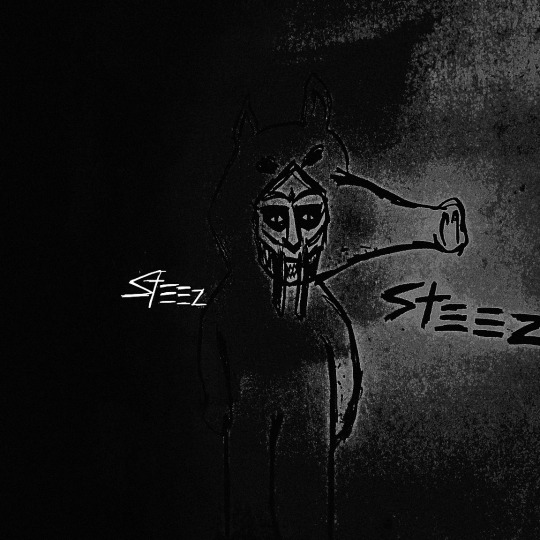
“Don’t look; but I Think The Elephant In The Room is Wearing An MF Doom Mask..”
By @tomasistrill
December 12, 2019
The Manifesto
“I am the elephant in the room;
bringing doom,
really soon.”
-TOMMY TRILLY
-Form & Shape
The image is sized to be square to eligantly frame my thesis of the symmetry that outlines all things asymmetrical.
Using dimensions of 1080x1080pixels gives the piece functionality & purpose as cover artwork for an important project being manifested as we think, speak & breath.
The color scheme is purposely & purely monochromatic. Starting from left to right; the viewer will immediately see that black is the dominating color of the composition.
However, dominant, is nothing less than an understatement. When working with black on this piece; I found myself compulsive, aggressive & even manic at times.
I strayed far from my initial concept of having the black fade to an almost white tone; never truly giving my viewer the graceful embrace of a pure white.
Instead; my fanatical usage of black lead me ever deeper into the enigmatic labyrinth of my subconscious & a graceful awareness of the courage to create.
-Ethos, Pathos & Logos
The toxic love affair between my creative mania & the color black conceived a scene no longer so two dimensional; contrasted with a character that will never be anything more than it’s two dimensions.
The character is depicted in the center of the room. However, because he cannot escape his two dimensional existence, the center of the room is a place he can only observe from afar. He doesn’t understand why none of the people in the room pay attention to him.
His body language communicates a lonely disposition; arms hanging at his sides, hands [possibly] in his pockets & eyes staring far into the abyss; painfully conscious of his glaze matched by the depths of true existence.
On the left & right of our self-ruminating character; reads “S†≡≡Z.”
A word meaning to have style with ease; made popular by hip-hop on the East Coast. In my meditations on the word, came to me, the most clear understanding of grace & what it means to have it.
Bruce Lee describes it as the effortless flow of water; taking the shape of whatever contains you; the body containing the mind & the mind then containing the soul.
This journey inward in search of the holy S†≡≡Z requires you to courageously be yourself purely in the face of adversity. Everytime you choose fear over courage; you’re taking steps outward & away from the S†≡≡Z!
-Spiritual Subliminals
Diving ever deeper into the art & the messages it has for us; we’ll turn our focus to how the word “S†≡≡Z” is communicated to the viewer. Using things such as; color, form, shape, symbology, typography, etc. I was able to effectively communicate ideas to the beholder, in a very visual, yet subtle way.
“S - - -Z”
The “S” at the beginning represents a wavelength that’s smooth from crest to trough.
While the “Z” at the end presents an opposite, but equal wave; this one being more aggressive in it’s frequency.
This is the inevitability one faces in making the decision to be themselves.
Sometimes the wave is S & sometimes the wave is Z, but if you know how to surf; the ride is always steezy.
“- † - - -“
The letter “T” here serves at a ✞ symbol standing for the divine power of love & forgiveness within Man.
“- - ≡ ≡ -”
The arrangement of three horizontal lines is an angelic numerical sequence “111” that tells the intuition to take action.
Encouraging you to keep following your spirit; if you see this listen to your gut/heart.
The double “EE” sequence is made of three horizontal tic marks, similar to a traditional capitalized E, but instead here we see “≡” used; one of the eight trigrams used in Daoist cosmology meaning “Heaven.” 乾 Qián ☰ Heaven|坤 Kūn ☷ Earth|震 Zhèn☳ Thunder|坎 Kǎn☵ Water|艮 Gèn☶ Mountain|巽 Xùn☴ Wind|離 Lí☲ Flame兌 | Duì☱ Lake
This rendering of “S † ≡ ≡ Z” is then contrasted across the longitude of the entire ensemble; painting a polarizing picture of the age old existential struggle of the inner against the outer.
The only usage of a true white tone is in the first occurrence of S†≡≡Z; in the darkest section of the piece. Then, almost mockingly, right in the middle of the lightest area, we see the return of darkness; in the second & final occurrence of S†≡≡Z.
This beautifully illustrates; when the world is dark, the individual will intuitively become the light he so desperately seeks.
We can then safely assume if the world becomes illuminated in mankind’s brilliance; the individual will only find peace in the shadows of his own world.
Narrative-
MF Doom:
A character/persona written by british-born EMCEE Daniel Dumile.
From his upbringing in Long Island, New York to his controversial rise to infamy; his story is trill hiphop lore. He became a man deep in the minds of millions & they don’t even know his name.
Initially, rapping under the alias Zev Love X, he formed the rap group KMD & signed to Elektra Records. Just before the release of the group’s second Album, boldly titled “Black Bastards,” the doom rapper’s late brother DJ Subroc was struck by a car & killed.
That same week the group was dropped from their label & the album was scrapped. Dumile left the industry & lived essentially homeless from 94’ to 97’.
He then left New York to settle in Atlanta, Georgia. Still recovering from his wounds; the rapper would don the iconic DOOM mask & take revenge "against the industry that so badly deformed him".
Thus the notorious villain of the hiphop underground MF DOOM was born.
He is often praised as not only one of the illest lyricist to ever do it, but also as a genius producer.
However, inspite of his immaculate discography & significant respect from industry legends, he is still widly unaccepted by the community he’s devoted his life to.
The Elephant:
Elephants are known as a keystone species; meaning it has disproportionately large effect on its environment relative to its abundance.
In fact, by simply existing; the elephant has the power to inflict change in the world it lives in. They, as all animals do, move across the earth manifesting their every desire; unconcerned with anything & everything that isn’t necessary to life.
Effortlessly laying the foundation on which nearly every other speices, within it’s domain, inevitably builds it’s existence.
They themselves embrace a matriarchal lifestyle; in which the feminine is the primary power within society.
Family Groups, consisting of mainly females & children, are led by the eldest female matriarch; with many of the males choosing a more solitary existence.
The elephant recognizes itself in a mirror; demonstrating a capacity for self-awareness found only in apes & dolphins. They also morn their dead & show signs of stress when loved ones aren’t well.
It is well known that the elephant’s memory is stone; able to recall locations of watering holes, family members, vast migration routes, etc. all over their 70 year lifespan.
Conflict:
It’s no surprise that elephants have inspired many literary, mythical & religious cultures; traditionally the elephant has been a symbol of strength, power, wisdom, longevity, stamina, leadership, sociability, nurturance and loyalty.
We see these things reflected in political ideologies of the American Republican Party; who’ve used the elephant as a mascot since 1874.
Conveying a message to undecided voters to preserve the values of the past & to have noble principle guiding your actions.
On the surface level this is honorably patriotic, but as I dived ever deeper; I found a story of people divided simply by perspectives based on how reality presented itself to the misdirected & misguided naiveté of the ignorant & innocent.
The parable of the blind men & the elephant originated in the ancient Indian subcontinent. A group of blind men, who never encountered an elephant before, all touch a different part of an elephants body & insist they know exactly what it is in front of them; based on their limited experience, they all go on to describe what they understood the elephant standing in front of them to be. The first person, whose hand landed on the trunk, said "This being is like a thick snake". Another man, whose hand reached its ear, said it seemed like a kind of fan. The third man, whose hand was upon its leg, said the elephant is a pillar like a tree-trunk. A fourth man who placed his hand upon its side said the elephant, "is a wall". Another who felt its tail, described it as a rope. The last felt its tusk, stating the elephant is that which is hard, smooth and like a spear.
In this parable; I found a moral of the subjective truths we face every day in our common lives.
All of these men share a deep common attribute of blindness & thus will cling to shallow differences in sensual experience & each man will have a different ideology for why he does so.
Man will neglect fellowship with his fellow man if, in his limited experience of reality, he finds it to be a necessary action in his life.
Unfortunately for a more modest man; life is often misunderstood by his neighbors.
Perhaps he dreamns of power, so he creates the illusion he has a higher knowledge of the elephant. Maybe he’s a coward & would rather formulate an opinion than walk away, because he fears rejection from the group.
Man has a habbit of claiming to know the absolute truth based on their limited, subjective experience. As they ignore other people's limited, subjective experiences. Which may be equally true; only ever able to justify their claims with fear or courage.
Resolve:
Courage requires immaculate moral responsibility & higher knowledge. To stand in the face of destiny with the heart of a warrior is an endeavor most men can no longer dream of.
It requires too much & so most men spend their lifetime in the same predicament the elephant himself is in; standing in a room being ignored by those whose hearts call out to him! To be the elephant in the room is a tragedy largely ignored.
The expression "the elephant in the room" is a metaphorical idiom in English for an important or enormous topic, problem, or risk that is obvious or that everyone knows about but no one mentions or wants to discuss because it makes at least some of them uncomfortable or is personally, socially, or politically embarrassing, controversial, inflammatory, or dangerous. This same sociological & psychological repression operates on the macro scale of modern society.
Should something as conspicuous as an elephant be overlooked in codified social interactions? Of course not. You are the elephant in the room.
Conclusion:
Not only has he not forgotten; but the elephant himself, in all his divine S†≡≡Z, stands in a room full of people he remembers from the beginning of time. They talk of the old days; almost every word hinting at his presence in the room, but they just go on rambling as if the elephant himself isn’t standing next to them. They’re completely oblivious to the fact that there’s a god damn eight-foot seven-inch Asian elephant with a fucking MF DOOM mask on right there. He’s tired of being ignored; soon he will escape from his interdimensional hell & bring doom.
#manifestation#manifesto#doom#mf doom#elephant#republicans#evolve#ideas#deep#meditation#steezy#steez#grace#art#writers on tumblr#writing#writers#new poets on tumblr#not poetry#poety&rhythm#hip hop#tao#astrology#the elephant in the room#love is blind#poetryportal#spilled ink#twcpoetry#monochrome#new age
10 notes
·
View notes
Text
The Tenets
(written with @basteala)
The classroom was well lit and full of eager new Dawnsmen. Most had given their oaths only days before. This was their first day in the classroom and there was an air of excitement from the individuals sitting within.
Knight Briggette Garabaldie had greeted each individual as they entered. She was dressed in simple but elegant robes, black and gold of the Dawn. Her hair pulled back in a neat bun, the scar on her neck covered only by the collar of her dress. She stood at the front of the room, looking out at those present before clearing her throat softly and stepping forward. Her voice carried to the back of the room, “Good morning, Dawnsmen.”
Rounds of “Good morning ma’am” came back to her before she continued. “You have joined one of the Alliance’s elite forces. The best of sword, bow, and magic surround you on this island. The Dawn’s creed, who can tell it to me?” Her blue eyes narrowing as she looked at those seated, finally someone spoke up.
“We shall fear no evil, evil shall fear us.”
She smiled and nodded, “Correct. But what does that mean? What does it mean to be a Dawnsman? What does it mean to be the thing that evil fears?” She held up a hand. “That is what you are here to learn. Being a Dawnsman is more than just knowing which end of your sword to hold up against an enemy.” A few snickers had her glancing once more around the room before it quieted. “You must also follow the right principles and values. The Light tells us to have Respect, Compassion, and Tenacity. But what do those words mean? And how do you have them? How do you show others that you follow that creed?”
“On our first day here, I have with us a renowned Knight of the Dawn. Knight-Master Basteala Thayne is here to share with you all some of the ways, she lives up to those values.” Bri looked toward the doorway where the woman she loved with all her heart stood. A nod of her head and a little bit of a beckon to Bast as those in the classroom turned their eyes to the Knight being introduced. “Please give her your attention and welcome.” Bri stepped to the side to take a seat where she could view Bast but still be able to step up and speak, if needed.
Basteala Thayne walked up to the front of the class, offering Briggette a warm smile of her own, but otherwise kept things professional. Perhaps by contrast to her title, the paladin was dressed very simply, wearing a clean, black button down shirt, and matching trousers. A gold medallion bearing the Dawn’s crest hung around her neck, and she wore the black and gold cloak of her office, but she was otherwise unadorned. Even her mark on her hand was covered in two black leather gloves. It was an honor she respected, but not one she wanted to flex, right now. Right now, she wanted to face the students as equals, to remove the barrier between mentor and learner, at least a little. To leave no confusion that Private, or Knight, or beyond, they were all children of the Light. That she too once stood where they were.
“Thank you, Briggette Garabaldie. As Briggette said, we’re here discuss the tenants of the Light, and, by extension, the values of the Dawn.Now I know not all of you share that faith, I see plenty of kaldorei among you, today, and quite a few Kul Tirans. That’s fine. I’m not here to convert you, but only to provide context. First off, who among you can tell me the Oaths of the Legion of the Dawn?” She smirks as she looks over the crowd. “Come now, don’t be shy~ This is your first day here, so most of you couldn’t have taken those oaths more than a week ago~”
A green skinned hand went into the air, a Kaldorei spoke softly but could be heard around the room, “By my Hand, as a private, and the Highlord's will, do I swear to you the Oaths of the Dawn. That my sword shall be a tool of judgment against the wicked. That my shield shall be a bulwark for the weak. That my knees shall never bend, and my will shall never break. And that the Dawn shall ever rise upon my shoulders.” Her head tilted slightly to see if she had spoken correctly.
Basteala smirks. “Word for word the oath of the Dawn.” She would step a little closer, and cant her head, looking the Kaldorei in the eye. “What do you think about those vows? What do they mean, to you?”
The elf smiled easily, “Well… since I use neither shield nor sword, I took them to mean that whatever weapon I wield will be used only to defend and protect. That I will stand fast against the evils of the world. And that I will not dishonor the people who have sworn the oath as well.”
Basteala’s eyes glint with amusement as she mentioned the literal idea of a sword and shield. “I get that question a lot, if you can believe it. Some people take it as an idea that we’ll teach you how to use a sword and shield--and by the Light and Elune, we will, but there’s both less, and so much more, to those promises. It’s a solemn vow to protect the innocent, and to slay the wicked: a tenant that seems simple on the surface, but with two pillars that are so often at odds with each other.” Basteala takes her two hands, balls them into fists, and lightly thumps them against one another, to emphasize this last point.
“I’m going to address that point first. I doubt I need to remind anyone about the Fourth War, and the pain and death it brought to our people, yes?” She would look to the class, waiting for affirmations, or at least signs that they were paying attention, before continuing. “I joined the Dawn shortly after the war started to really heat up, when it was in full swing, and my homeland in Stromgarde turned into a meat grinder for both sides. Prominent in my thoughts at the time, and I’m sure in others that did their best in the war was this: what happens when this is over? To what point do we stop the Horde aggression?” Bast claps her hands together.
“Congratulations, you’re all promoted. For this day only, you are the minds behind the Alliance, the leaders, the heroes, the scholars. You’ve just won the war against the Horde. You now have a hostile foreign power that has surrendered, been bested, whatever, but the point is, you now stand before Orgrimmar, and have been asked to dispense justice in any way you see fit. What do you do?”
A brown haired Kul Tiran spoke up, “Kill any that don’t swear allegiance!”
A gnome shook his head and said just after, “I’d think most soldiers would just want to go home, so those that gave up arms, send them home?”
Another man spoke up, “What we did...do you think it wasn’t the right choice?” His question quieting the others that had started to speak up their opinions. The young man gave Bast a critical look waiting for her answer.
Basteala folds her arms and waits as she listens to each student voice their opinions. Many of them spoke, she felt, emotions and sentiments that had danced about a hundred times. She could understand them all, expected them, and was about to speak up when one voice stood out among all the others. Challenged her. Her lips pulled into a small smirk.
“I would say we took a big risk, that day. We gave the Horde the peace they took from us. We met blades with understanding, and now try to rebuild a world that had no business being at war so shortly after repelling the Legion that demanded our extinction. We were merciful.” Basteala would look at the class again, taking, in particular, time to look at the Kaldorei, Gilneans, and even the Draenei that were gathered at the class today.
“But I don’t think justice was done that day. There are many night elves still without homes, parents who had to bury their children, loved ones wandering, alone and heartbroken, because a select few idiots selected a megalomaniac to lead, and then blindly followed her to set the world on fire. To those of you that were around during the war against Garrosh Hellscream, this may all sound very familiar. Some of you may even be wondering how long the peace will last, with such a volatile, violent neighbor.”
“And that’s the point I want to bring up right now. We were merciful. To have continued this violence would be to choose between one of two terrible choices: to kill every soldier, to destroy the Horde’s way to make war, to breed contempt among those that survived, until they found a way to make war again--and I’m sure to anyone who’s read your history about a certain group of Internment Camps, that may also sound familiar. We all know how well that went, right?” She smiles bitterly. “Which leads to option two: genocide.” She lets that word hang for some time. “I’m sure I don’t have to tell any of you, if you think about it enough, just what horrors that would mean.”
“And I’m sure there are other options and variations of those options, but in the end, our best option to move forward, to bring peace, was to offer it. We can’t control what resentment the Horde feels towards us over the war, but what we can control is ourselves. We denied ourselves justice, and we have to live with that. Remember what Bri said about the tenants of the Light? About Compassion, Respect, and Tenacity? That isn’t just about facing an evil trying to kick down our doors and kill our friends. Sometimes that evil, that very evil we need to defeat, lies within ourselves. Tenacity is as much about battling temptation, understanding that desires for justice that can twisted into revenge. Respect isn’t just about propriety and honoring your friends, but also your enemy. Compassion isn’t just the ability to turn around from those evils, and walk away, it’s about taking your opponent’s hand and leading them away from that darkness as well. It’s to lift someone out of the gutter. It’s to offer redemption. It’s to see the man, woman, and child behind every individual you see, and to connect with them. To help them at your own expense. To take the burdens of others, and make them our own, and shoulder them together.”
“And what’s what we did at the end of the Fourth War. We can’t control anyone’s thoughts or feelings but our own. When we offered the Horde peace, despite everything they had done, we took every scar, every burden, every pointless death and loss on us. We made a sacrifice that day, to bear the pain and regret of that war, and every war with the Horde before that. It’s on us now, to stand as wardens against that own resentment, so it may never again see the light of day, or poison Azeroth against itself. To deny ourselves justice, in order to act in a way that is just. That is respect, that is tenacity, and that is compassion made manifest.”
“And I want to stress that word: compassion. There’s a reason that it’s first of the Light’s tenants. The Light manifests itself in any of our good deeds. It’s through compassion that Elune shared her knowledge with the Kaldorei. Compassion brings Anshe’s bounty. And it is through compassion that we become one. The moment that Compassion is not what drives us first, we become separated from the Light. We become alone. We become blinded by the Light we’ve put behind us, even in that brief moment, and we become the very evils we are trying to stop.”
Bri sat watching both the classroom and Bast as the conversation deepened. As Bast stressed compassion she could be seen nodding along with the other’s words. As the other paladin finished, Bri pushed up from her chair and came to stand next to Bast looking out at the recruits. “The day will come, maybe not tomorrow. Maybe not for several years. But it will come, where you will have to choose. Choose the right path with compassion, respect and tenacity. And it I can’t promise it will be easy to choose compassion, respect or tenacity.” She paused, letting that sink in.
“Each of these values, these tenants, they are more than just what those who practice with the Light follow. These are the core to being a part of the Dawn. Yes, you have sworn your oaths. Some of you have even seen combat before today. Some of you are paladins or priests very familiar with these virtues. Some of you may know them from whatever faith you practice by other names. But each of you, no matter your background must now understand and live up to what these three little words represent.” Her gaze shifted over each of the people in the room.
“So, now I want to ask you all a question. One that I want you all to think long and deep about. It will be one of your first assignments, and yes, I will ask that you write up your answer. Put to paper your thoughts on this. Why would evil fear compassion?”
1 note
·
View note
Text
Amazing Spider-Man: Renew Your Vows Vol 2 #10-12 Thoughts
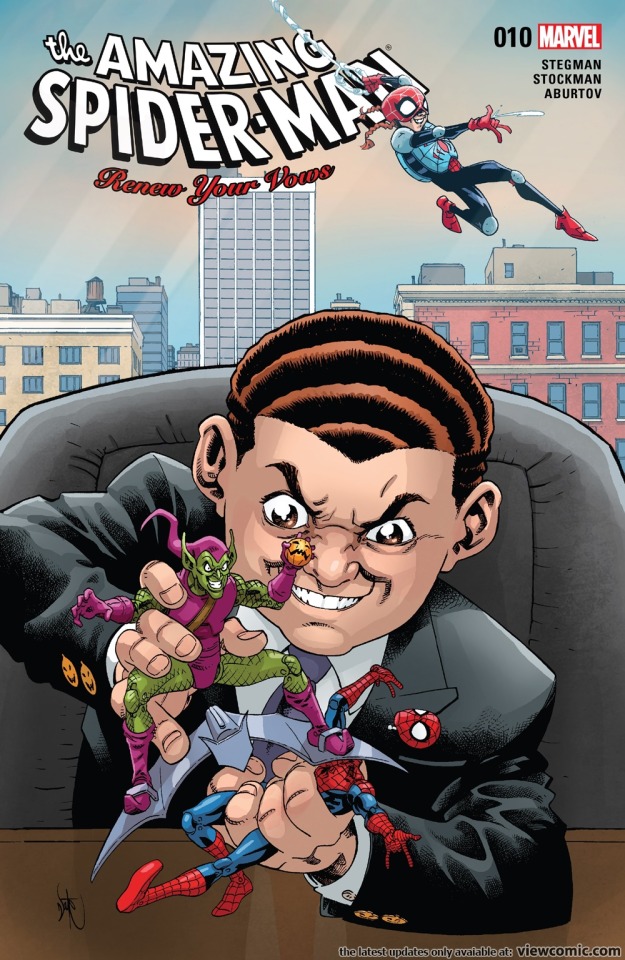


Previous thoughts here.
Even though issue #10 is a done-in-one and issues #11-12 two-parter, to all intents and purposes the three issues form a three parter, issue #10 acting as a kind of precursor to the latter issues.
First things first the elephant in the room to address is Ryan Stegman as the writer and by extension the artists filling in for him.
Whilst neither Stockman nor Level are the measure of Stegman, they both do respectable jobs, with Level’s art in particular being a better compliment to Stegman’s. This isn’t to say Stockman’s art is ill suited because like in issue #5 his style excels at expressive almost Rugrat looking child characters and issue #10 features one such character as the lead.
Stegman for his part, whilst he may be working off of ideas leftover from Conway, does a surprisingly good job. There are some problems with issue #11-12 I will talk about later, but issue #10 is great and over all his dialogue, pacing and handling of the characters is solid, shockingly solid for someone who I do not believe has much (if any) writing experience. This applies to his writing contributions to issues #8-9 too.
His work is not as layered or as nuanced as Conway’s but it’s still good, still cuts to the heart of this series (family) and still delivers on the emotion when needed.*
This arc as a whole provides a decent enough wrap up to the over all subplots across the series and the 12 issues as a whole did a good job in the pacing department.
I despise decompressed storytelling but RYV up to this point has handled it really well. The first 4 issues were the guiltiest in this department but their style of pacing was justified. Beyond that it’s been done-in-one stories or else two parters or in this case a pseudo three parter. This keeps things nice and breezy and makes you feel like things have actually advanced quite a bit since issue #1.
Of the three issues though it must be said issue #10 was the strongest and most interesting.
I said back when I covered issues #8-9 how I appreciated that each story across the series was mixing up which characters get the focus (last arc being Peter and more noticeably MJ) and that continues here. Whilst technically Normie is the lead character of issue #10 it’s Peter and Annie who’re the Parkers getting all the focus here, and it’s adorable.
This is something we haven’t seen before outside of that back up from issue #1 and it’s nice to call back to that (along with the fact that Peter pumps Annie full of sugar when MJ’s away). The clever part of the story is how the focus upon Peter and Annie is complimented by the Lizard and Billy’s opposition to them. This recalls Mr. And Mrs. Spider-Man #1 from 2009 but also emphasises the key point of this story: Normie’s loneliness.
The whole issue is an exploration of Normie, his attempts to live up to his father and grandfather’s toxic legacy and how that quest and their absence in his life has left him alone and unprepared. He thinks he’s grown up to cope with the challenges facing him but he is still ultimately a sad little boy who misses his family.**
In particular in this issue and the next two Normie’s problems are highlighted when contrasted to Annie. Annie expresses gratitude for having a loving family like Normie lacks, calls out Normie on the depressing state of his young life and behaves (comparatively) more like a real child of around their age.
But it is also Peter’s treatment of him with small sympathy that highlight’s Normie’s childishness and pitiful emotional state. We see his anger is born less from a desire to honour his legacy, or even plain old revenge but more a childish anger about just not having his parents (specifically his Dad around). And Stegman and Stockman just sell it!
You see the shades of Norman and Harry’s vendetta cropping up in him but just from a different angle. This permeates through the arc actually and both directly and more subtly recalls DeMatteis and Buscema’s Harry Osborn arc from the early 1990s.
It’s not just fun or coincidental references either it taps into the idea of how family legacies can be toxic which is contrasted nicely with the family dynamic of the Parkers.
This comparison and contrast between the Osborns and Parkers deepens in issues #11-12.
The most obvious example to bust out is the one already drawn (but done better here imo) from the Venom arc. That of MJ and Liz Allan both being mothers who will go to extremes for the sake of their children, with their confrontation in this arc being pretty juicy.
But we also see it in Peter’s protectiveness over Annie too. In another potentially genius call back to Spec #190 by DeMatteis and Buscema (and possibly RYV vol 1 #2), a rage fuelled Peter beats the crap out of the Rhino due to him threatening his family. This is both a realistic reaction for a parent to have and also very true to Peter’s established character in both RYV and the 616 universe, and something not displayed much in RYV vol 2.
In a way this arc marries (if you pardon the pun) the kind of extremes Peter was shown to have regarding Annie from vol 1 with those MJ had been given in vol 2 as the story shows both becoming aggressive in pursuit of rescuing Annie.
In having Peter hunt down Annie, Annie confront and attempt to redeem Normie and MJ get to the bottom of her Venom situation with Liz, issue #11 does a great job of closing out the over arching story of volume 2 by having the Parkers all equally be the focus. Issue #12 kinda does the same thing by involving the X-Men and similarly the use of a Regent power draining mech helps tie-back into the original RYV.
Issue #12 in regards to balancing out the family has a few more mixed results, but it depends what you want out the conclusion.
The story again provides us with a nice change up in the dynamics as it’s more Annie and Normie’s story than it is Peter and/or MJ’s. So it’s something different, but for a wrap up arc maybe having the Parkers fight all together was more thematically appropriate.
It certainly isn’t poorly done though. Annie comes into her own, Normie is believably redeemed and the story has a great message about how words can sometimes win out over fists.
There is also a great twist (kind of) in having the background character Ms. January wind up as the main villain, allowing for Normie to be redeemed and allowing him to break the Osborn Curse of which the arc is named after. It also ties back into the theme of family as Ms. January’s actions stem from a kind of motherly instinct towards Normie.
The action is pretty decent as are the stakes.
Giant robot = Bad.
Giant robot vs a powerless Spider-Man and Mary Jane = Very bad
Giant robot vs a powerless Spidey and MJ whilst it also has the powers of four of the X-Men = How ARE they gonna get out of this one?
Speaking of the X-Men, the arc handles them in a way I appreciated. Not only does their presence recall RYV #1 but it also ups the stakes whilst not allowing them to take away any of the spotlight from the Parkers.
Specifically Annie who comes into her own as I said and this then leads into a pretty organic transition into the new 8 years later status quo.
So...all great right?
Well...not exactly.
Let’s put aside how the Goblin mech having the X-Men’s powers was somewhat underutilized. Let’s put aside even how as I said it maybe should’ve been better if all three of the Parkers were involved in bringing down the threat.
Let’s instead talk about the three big elephants in the room.
Elephant #1: Venom
When I finished RYV #9 even though MJ was still wearing the symbiote I presumed that she’d beaten it and was going to get rid of it. Seemed like the obvious and natural ending to that arc right?
Right...except that didn’t happen.
I was truly surprised when I saw MJ in the suit during this arc. It got me thinking her absence and trip to the hospital in the prior issue made more sense.
But narratively it served little purpose here. It gave MJ something to do in issue #11 I guess but equally MJ could’ve gone to confront Liz without the symbiote simply to learn why Liz had done what she did.***
So why did MJ keep the costume? My suspicion it was purely to justify her still wearing it in Venom-Verse and thus milk MJ in the suit more given how the marketing department (or whoever) were the people who pushed that onto the series in the first place.
It wouldn’t be much of a problem if not for the fact that it’s disposed of so cheaply and easily in issue #12 and you have to No. Prize why she couldn’t have gotten rid of the suit earlier.
The Fantastic Four were mentioned in issue #10 and since they were the guys who got Peter and the symbiote separated in the first place you’d think this wouldn’t be a problem. The ONLY explanation I can dream up (and this isn’t present in the story mind you) is that the symbiote was altered somehow by Liz to be resistant to fire and sonics, hence why in issue #9 MJ punches a flamethrower or something with no problem.
Elephant #2: Ms. January.
Conceptually a background character turning out to be a villain in a twist is great. Problem is we never learn why.
At first it seems like Ms. January just cares for Normie that much but not only is this an offhand motivation in the first place but more poignantly Harry (not Normie) is brought up more than once by Ms. January in issues #11-12.
So it has something to do with him but we never learn what exactly.
She just switches on everyone, goes nuts and it’s because of Harry.
????????
I think this is an example of Stegman being an artist more than a writer tripping up, it may well have been Conway’s original plan for Ms. January to be the final boss but he hadn’t fleshed that part out and Stegman just plugged it in.
Elephant #3: This arc takes waaaaaay too much stuff from Spider-Girl.
I love Spider-Girl. She is my second favourite Spider character behind Peter himself. Her series was a triumph and an underrated all time classic.
And one of the key parts of that series was Normie Osborn being a sad lonely young man self-destructively trying to live up to his father and grandfather’s legacy as a Goblin, and avenge what he perceived as his father’s death due to Spider-Man. The subplot wraps up in Spider-Girl #27, my favourite issue of the series, in which Spider-Man’s daughter is captured and at the mercy of Normie, calls him out on his BS, expresses sympathy for him and with kindness talks him into changing his ways, finding redemption and becoming an ally to her.
Sound familiar?
Here is the thing, putting aside how Spider-Girl did it better, there is nothing wrong with repeating the same ideas to an extent.
But it is the fact that they repeat the redemption part and the manner in which it happens that is the problem. No Normie isn’t borderline suicidal in this story but he’s still on a path to destruction and still has Annie at his mercy and she still is the one who redeems him.
It would’ve been a better take had it actually been Peter who talked him down.
The comparisons to Spider-Girl are not helped by many fans feeling RYV and Annie supplanted Mayday in certain respects and more poignantly that from here on in the series would be borrowing waaaaaaay too many elements from Spider-Girl, starting with the epilogue to this issue where Annie becomes a teenager.
So...in a lot of ways this arc had the weakest writing of RYV up to this point, but I think it’s strengths in spite of it’s weaknesses combine to render it stronger than the X-Men arc and thus only the second weakest arc of the series thus far. In particular I have to commend them for making so much of it work as they did in spite of Conway leaving.
I doubt I’d be complaining this much had I read these at the time of their release though simply because back then these would’ve still been infinitely better Spider-Man than Slott’s clownshow.
Were I to give issue #10 it’s own grade it’d be an A-.
But the 3 issues collectively get a B-.
Good, worth a read but very flawed nevertheless.
*Which is very damning when you consider Stegman, an artist, was a better Spider-Man writer in 3-5 issues than Slott was across 10 years.
**Also the story explains why Normie seems more intelligent than he should be, it’s because of the Goblin formula which helps resolve what otherwise would’ve been something of a contrivence.
***Speaking of which how did Liz know Spinneret would’ve taken her bait about the symbiote? Not saying there is NO explanation but we don’t really get one ever.
P.S. How the Hell can this random orb contain Peter’s powers? His powers stem from being altered on a genetic level!
#RYV thoughts#renew your vows#Spider-Man: Renew Your Vows#Amazing Spider-Man: Renew Your Vows#Spider-Man#Spinneret#Spiderling#Anna May Parker#Peter Parker#mjwatsonedit#mary jane watson#mary jane watson parker#Ryan Stegman#Normie Osborn#the lizard#green goblin#gerry conway#norman osborn#harry osborn#Liz Allan
29 notes
·
View notes
Text
Birthday number
Birthday number
The birthday number represents a vibrating influence that has existed since the time of his birth. It can determine a person's character or control his destiny, his future. The birthday number reveals the inherited traits of a person, and serves as a guiding factor rather than a dominant one. The birthday number is of paramount importance, as a person acting against their natural inclinations will face clear obstacles in the areas that lie in the strength of their name. It is obtained from the digits of the date of birth and is a personality number that reveals the natural characteristics of a person. The simplest method is to add up all the digits of this number, then, if 10 or more are formed, add these digits as well. This process continues until you get an elementary number from 1 to 9. Dates can be abbreviated to vibrating numbers by adding the day, month, and year (January 1, February 2, December 12 = 3), etc. For example: a person born on March 12, 1975 will receive 1 - the vibrating number of the person's birthday, since the sum of all the digits when added is 1 + 2 + 3 + 1 + 9 + 7 + 5 = 28 = 10 = 1
Esoteric interpretation: birth number 1
It is a symbol of his own person, a symbol of glory and power, action and ambition. A person with a birthday number of 1 never changes his course and does not try to jump far ahead immediately, jerkily, ahead of time. He reaches new heights only in a direct and progressive way. They should avoid selfishness and greed, self-will and self-will, be careful, balance their interests with the interests of other people so that they do not come into a conflict state, otherwise they can lose friends and gain enemies. A strong birthday number 1 promises a lot, it offers high development if you follow its advice. Strongly expressed "I", will, energy. The unit protects people who are active, strong, inclined to innovations - creators and leaders in all areas. One people always radiate energy, generously give it to others, they cannot be overlooked even in a crowd. There are many artists, politicians and national heroes among them. When it comes to love and sex, these people form many bonds in early adulthood - it is often very difficult for them to settle on one partner. They are attracted to members of the opposite sex who are serious about life. Whores are not interested in them Such people are predominantly sexual. Unfortunately, sex for them is only a means of expressing their sexuality. Many of them do not understand that marriage or other partnership implies a union of equals, not only in bed, but also outside. They are usually loving parents and are the head of the family. They are especially concerned about the preservation of the family as a dynasty.
Esoteric interpretation: birth number 2
The deuce symbolizes balance in mood, behavior, actions, gentleness and tact of character, searching for compromises, smoothing out sharp corners, acute problems. Internal contradictions, excessive judgment, eternal advice to friends and others can prevent you from sorting out your own affairs. Number 2 is antithesis, balance, contrast. It is located between light and darkness, good and evil, warm and cold, wealth and poverty, life and death. You can accept all circumstances as they are, adapt to them, and be reconciled with them, you can avoid extremes, any insecurity and excessive generosity, think and care not only about others, but also about yourself. 2 good designers and advisors, but not performers. You need co-authors, associates, employees. But when choosing partners, let the mind rule over the feelings. The deuce endows its owners with gentleness and passivity, emotionality and physical health. It encourages a person to live by desires and passions, provokes emotional disorders and depression. Patronizes women, motherhood, psychologists, work with the subconscious and meditation, as well as people living on rent and actors. It helps to accumulate in the material world, but is not the number of bankers. Household is very important for these people, so their partners should have common sense. Sexual passion can fade into the background, giving way to genuine respect and love. Moreover, her absence will not make married life any less happy in the long run. They are very loyal natures and in return demand absolute loyalty. As long as they feel that they are loved, needed, everything is fine, but once doubts are painted over, they instantly become jealous and may resort to cruel revenge in their desire to save the family.
Esoteric interpretation: birth number 3
Birthday number "3" reveals its character faster than all other numbers. 3 has a keen and intuitive mind, the ability to quickly and easily assimilate knowledge, often at a very early age. You are a talented person, capable, but alone you will not be able to fully use your talent, since you will choose easier ways and means to achieve your goal. 3 likes to adapt to anything that promises immediate benefits. He prefers to take life as such not so seriously. 3 we need interesting people, an easy, pleasant environment, constant entertainment, the ability to live today, and not in the future. With the right start, it will go far, since 3 do not doubt their abilities, and are competent at work. However, natural impatience, the desire for easy activities, as well as temporary quick success in it, can prevent you from switching to another path, with higher opportunities, where long-term planning is supposed. The three calls to be attractive to the other sex, sometimes aggressive, but invariably bright, brilliant, happy and successful. Patronizes students, military, surgeons and adventurers. Such people are most often attracted to charming representatives of the opposite sex. They have tremendous opportunities to attract people with arousing sexual aura. But a stable family requires much more than charm. Therefore, they must rely on knowledge of human nature. In their youth, many have illusions about marriage. It seems to them that everything will automatically change for the better, but after the romance of the first months, bitter disappointment can come. The only guarantee of the strength of a marriage is the community of interests of partners, as well as joint participation in social activities. At the same time, love and respect are enhanced.
Esoteric interpretation: birth number 4
Birthday number 4 symbolizes a balanced, hardworking nature, careful, avoiding risky ventures. A capable person, with his ideas, plans, tries to figure everything out on his own, without outside help. motto 4 - reliability, durability, honesty. 4 cannot be deceived, but 4 herself must avoid self-deception. If 4 has modest requirements and small goals, then this can become a symbol of defeat. But at the same time, this number gives 4 a solid foundation for the further development of knowledge and professional skills in various specialties. 4 acts in different guises: on the one hand, it is dull, poor, and on the other hand, it is strong and solid, which does not allow to fall into the abyss at any difficulties. Patronizes writers, artists, small and medium-sized businesses, sculptors, architects and land surveyors. Helps in negotiations and networking. Despite the fact that 4 are very reserved people, almost all of them need an ordinary family and normal sex. They honor "family values" more than others. Such reliable and motivated people are considered a good couple. They have great sex appeal. Rarely are romantics. Flirting and sex as such are usually not of interest to them. Only love matters, to which they almost always take very seriously, considering marriage as the main goal. They go for it when their feelings are strong.
Esoteric interpretation: birth number 5
The birthday number 5 symbolizes an enthusiastic nature, loving adventure and risky activities, prone to anything unusual. You are mobile, you love travel and travel and you feel at home everywhere. You quickly and easily learn foreign languages, traditions of other nations. Often your actions and behavior are completely sudden and unexpected, with unpredictable consequences. With all the difficulties, 5 usually comes out dry from the water. In many ways, resourcefulness and wit, cheerfulness help in life. Love for frequent changes can prevent 5 from evaluating the present, seeing real prospects. 5 are always directed only forward, although sometimes it is useful for them to see what is at hand. 5 makes a person sexy and nervous, adventurous and mobile. It encourages you to always be on the side of the law, to protect the weak, to reveal any injustice. The five patronize rulers, missionaries, teachers, philosophers, lawyers, bosses and travelers. In their search for a sexual partner, these people usually show reckless courage and can have a lot of romances before deciding on the final step. They love to experiment in this area and take a wait and see attitude for a long time. Successful or unsuccessful will be their marriage or intimate relationship depends on the extent to which the partners understand each other and whether they are ready to fill their love affair with spiritual content. They are usually confused by the external manifestation of feelings. Words play a more important role for them than caress, kissing, and sometimes sex itself. But over the years, they understand that words alone are not enough for harmony.
Esoteric interpretation: birth number 6
The nature is honest, frank, reliable. Views are progressive, but with a desire to create a name for themselves, to gain respect and favor from others, to maintain peace and tranquility among friends, to improve their living conditions. 6 literally exudes optimism and cheerfulness. Justifying a trusted job or position, 6 is satisfied with what has been achieved and does not strive for the heights of a career or fame. This 6 is sometimes hindered by complacency and complacency. The mask of dispassion 6 does not fit, since it does not cause much sympathy and gives rise to suspicion of hypocrisy. Six betrays a person who is inactive, inert, who loves home comfort. It harmonizes relations with the outside world, but can develop laziness and lack of principle, makes a person non-conflict, but at the same time makes him work hard and hard. The number patronizes physicians, laboratory workers, jewelers, designers, cartoonists, museum workers and collectors. These people are usually very sexy. However, they do not in any way enjoy universal love. Material considerations play a very important role for them when choosing a partner. If there is no sexual compatibility and mutual love between the spouses, this will become a source of disappointment and even rupture of relations. They should be more open about expressing their feelings and affection. Then they will more strongly attract partners who will actually love them as they are, and not as they appear.
Esoteric interpretation: birth number 7
Birthday number 7 symbolizes mystery as well as knowledge. The line of this contradiction can be continued. Here such personality traits arise as diligence and a poetic soul, albeit with some oddities, a tendency to analytical thinking and strong intuition, rich imagination, vivid, vivid imagination. With this number, composers and musicians, writers and poets, philosophers and recluses, thinkers and hermits are born and raised. Their inspiration requires solitude and solitude. The weaker ones are drawn into a swamp of despondency and pessimism, the stronger ones become bright personalities, people of world renown. Seven inspires mystics and philosophers, but makes a person fussy, a little gloomy, sometimes irritable and non-contact. The number, on the one hand, calls for loneliness and creative seclusion, exposes barriers and restrictions. On the other hand, it patronizes marriage, cooperation and partnership. Maintaining harmonious relationships with these people is not easy, especially if they are people with opposite characters: a sensitive and sensual man and a less emotionally excitable woman or a strong-willed woman and a man who allows her to take over her. Faithfulness, a sense of duty, common interests, and a responsible approach to raising children contribute to a happy marriage with these people.
Esoteric interpretation: birth number 8
Birthday number 8 gives business ability, entrepreneurial spirit, fearlessness in all spheres and areas of life, especially in commerce and industry. Striving only forward, these people successfully carry out their plans and intentions, fulfill their plans: their will and strong character, their ability not to feel sorry for themselves and others, is reflected. And resistance, obstacles on the way, opponents only whip up, increase their energy and efficiency. The "eights" have rare administrative skills, the ability to manage teams, dragging people along. This is especially evident in the field of politics, in the military, in the business world, where they can be cruel and merciless. The eight forms a business materialist, strong, with a complex structure of the inner world. From all situations, a person of eight will find a way out, will never get into a mess, will always seem richer than he really is. His life is fraught with constantly changing situations, forcing him to make unexpected bold decisions. Eight forces a person to move from one level to another many times in his life. Eight people are rapidly moving up the evolutionary ladder, among them there are many Initiates. The social circle of these people changes with every turn of fate. If these people enter into an early marriage, their partners will need tremendous endurance, because it is during this period that they are completely captured by work and are eager to achieve their goals. In this case, they can destroy the love relationship. Therefore, later marriages are suitable for them. By that time, they will be fine and their feelings will become more stable. In general, if the choice of a partner is made correctly, these people are faithful, loving spouses, although they bring some peculiarities to the marriage. By the way, many of them are ready to sacrifice marriage for a career at any age.
Esoteric interpretation: birth number 9
Birthday number 9 symbolizes a strong personality with potential intelligence, capable of high development. Here success is given by the world of art and arts, artistic talent and creative, creative power. It is better for such people to immediately abandon the professions of a businessman, metallurgist, military man. Their problem often lies in the awareness of their talents and abilities and in choosing the right path in life. Under this birthday number, great inventors, discoverers of the new, and musicians, writers are born. It all depends on the ability and desire. Both of these factors should be combined, directed towards one goal - then success is guaranteed. The nine endows a person with spiritual activity and promotes higher mental activity. A man of nine is prone to religious revelations, cosmic contacts, synthetic sciences, self-education. Patronizes composers and musicians, navigators and poets, psychologists and hypnotists, writers and magicians. The fate of such a person can be changeable and fickle. There are many revolutionaries, drug addicts and alcoholics among the nine people. These people give themselves completely to love and passionately desire to be loved. Their thirst for love is so great that they are ready for anything for it. They attach great importance to the attributes of romantic courtship. At the same time, they quickly lose interest in the object of their attraction if he (or she) does not succumb to temptation for a long time. In many cases, marriage with these people is successful, if only because they are very sexy people. They take the question of morality and cleanliness in sex seriously. Betrayal is forgiven, but they immediately part with such a partner forever. At some stage, these people may want to reconsider the marriage relationship, even if the family is happy and love reigns between the spouses. They will want to know why they love each other. After that, they will wish to see the confirmation of love every day.
Число дня рождения
Число дня рождения представляет собой вибрирующее влияние, существующее со времени его рождения. Оно может определить характер человека или управлять его судьбой, его будущим. Число дня рождения раскрывает унаследованные черты человека, и служит скорее руководящим факторами, чем господствующим. Число дня рождения имеет первостепенную важность, так как человек, действующий против своих природных склонностей, встретит явные препятствия в областях, которые заключены в силе его имени. Оно получается из цифр даты дня рождения и является числом личности, раскрывающим природную характеристику человека. Самый простой метод - сложить все цифры этого числа, затем, если образуется 10 или более, сложить и эти цифры. Этот процесс продолжается до тех пор, пока не получат элементарное число от 1 до 9. Даты могут быть сокращены в вибрирующие числа при помощи сложения дня, месяца и года (январь - 1, февраль - 2, декабрь - 12=3) и т. д. Например: человек, родившийся 12 марта 1975 года, получит 1 — вибрирующее число дня рождения данного человека, так как сумма всех цифр при сложении 1+2+3+1+9+7+5=28=10=1
Эзотерическая интерпретация: число рождения 1
Это символ собственной персоны, символ славы и могущества, действия и честолюбия. Человек с числом дня рождения 1 никогда не меняет свой курс и не пытается прыгнуть далеко вперед сразу же, рывком, раньше времени. Он достигает новых высот только прямым и прогрессивным путем. Им следует избегать эгоизма и корыстолюбия, своеволия и своенравия, соблюдать осторожность, соразмерять свои интересы с интересами других людей, чтобы они не пришли в конфликтное состояние, иначе можно растерять друзей и приобрести врагов. Сильное число дня рождения 1 обещает многое, оно предлагает высокое развитие, если следовать его советам. Резко выраженное «я», воля, энергия. Единица покровительствует людям активным, сильным, склонным к нововведениям - творцам и лидерам во всех областях. Люди единицы всегда излучают энергию, щедро дарят её окружающим, их нельзя не заметить даже в толпе. Среди них много артистов, политиков и национальных героев. Что касается любви и секса, то у этих людей в раннем взрослом возрасте образуется много связей - им нередко очень трудно остановиться на одном партнере. Их привлекают представители противоположного пола, серьезно относящиеся к жизни. Бляди их не интересуют Такие люди преимущественно сексуальны. К сожалению, секс для них - лишь средство выразить свою сексуальность. Многие из них не понимают, что супружество или иное партнерство, предполагает союз равных, причем не только в постели, но и вне. Они, обычно бывают любящими родителями и являются главой семьи. Особенно они беспокоятся о сохранении семьи как династии
Эзотерическая интерпретация: число рождения 2
Двойка символизирует равновесие в настроении, поведении, действиях, мягкость и тактичность характера, поиски компромиссов, сглаживания острых углов, острых проблем. Внутренние противоречия, излишняя рассудительность, вечные советы друзьям и окружающим могут помешать разобраться в собственных делах. Число 2 - это антитеза, равновесие, контраст. Оно находится между светом и мраком, добром и злом, теплом и холодом, богатством и нищетой, жизнью и смертью. Вы можете принять все обстоятельства такими, какие они есть, приспосабливаться к ним, и с ними примиряться, можете избегать крайностей, любой неуверенности и чрезмерного великодушия, думаете и за��отитесь не только о других, но также и о себе. 2 хорошие проектировщики и советчики, но не исполнители. Вам требуются соавторы, компаньоны, сотрудники. Но при выборе партнеров пусть разум властвует над чувствами. Двойка наделяет своих хозяев мягкостью и пассивностью, эмоциональностью и физическим здоровьем. Она призывает человека жить желаниями и страстями, провоцирует к эмоциональным расстройствам и депрессиям. Покровительствует женщинам, материнству, психологам, работе с подсознанием и медитациям, а также людям, живущим на ренту и актёрам. Она помогает делать накопления в материальном мире, но не является числом банкиров. Для этих людей очень важен домашний уклад, поэтому их партнеры должны обладать здравым смыслом. Сексуальная страсть может отойти на второй план, уступив место подлинному уважению и любви. Более того, из-за ее отсутствия супружеская жизнь не станет менее счастливой в долгосрочном плане. Это весьма преданные натуры и взамен требуют абсолютной верности. Пока они чувствуют, что их любят, в них нуждаются - все прекрасно, но стоит закрасься сомнениям, они мгновенно начинают ревновать и могут прибегнуть к жестокой мести в своем стремлении сохранить семью.
Эзотерическая интерпретация: число рождения 3
Число дня рождения "3" быстрее всех остальных чисел раскрывает свой характер. У 3 острый и интуитивный разум, способность быстро и легко усваивать знания, часто в весьма раннем возрасте. Вы талантливый человек, способный, но в одиночку не сможете в полной мере использовать свой талант, так как для достижения цели будете выбирать более легкие пути и средства. 3 любит приспосабливаться ко всему, что сулит непосредственную выгоду. Жизнь как таковую предпочитает воспринимать не так уж серьезно. 3 нужны интересные люди, легкое, приятное окружение, постоянные развлечения, возможность жить сегодня, а не в будущем. При верном старте пойдет далеко, так как 3 не сомневаетесь в своих силах, и компетентны в работе. Однако природная нетерпеливость, стремление к легкой деятельности, как и временный быстрый успех в ней, могут помешать вам перейти на другой путь, с более высокими возможностями, там, где предполагается перспективное планирование. Тройка призывает быть привлекательным для другого пола, иногда агрессивным, но неизменно ярким, блистательным, счастливым и удачливым. Покровительствует студентам, военным, хирургам и авантюристам. Таких людей чаще всего привлекают обаятельные представители противоположного пола. У них огромные возможности, чтобы притянуть людей с возбуждающей сексуальной аурой. Но для стабильной семьи требуется гораздо больше, чем просто обаяние. Поэтому они должны полагаться на знание человеческой природы. В молодости многие питают иллюзии в отношении супружества. Им кажется, что все автоматически изменится к лучшему, но после романтики первых месяцев может прийти горькое разочарование. Единственной гарантией прочности брака служит общность интересов партнеров, а также совместное участие в общественной деятельности. При этом любовь и уважение усиливаются.
Эзотерическая интерпретация: число рождения 4
Число дня рождения 4 символизирует уравновешенную, трудолюбивую натуру, осторожную, избегающую рискованных предприятий. Человек способный, со своими идеями, планами, старается разобраться во всем самостоятельно, без посторонней помощи. девиз 4 - надежность, стойкость, честность. 4 нельзя обманывать, но и 4 сама должна избегать самообмана. Если у 4 скромные требования и небольшие цели, то это может стать символом поражения. Но в то же время это число дает 4 прочную основу для дальнейшего развития знаний, профессиональных навыков в различных специальностях. 4 выступает в разных ипостасях: с одной стороны - унылой, нищей, а с другой - крепкой и основательной, не дающей свалиться в пропасть при любых трудностях. Покровительствует писателям, артистам, представителям мелкого и среднего бизнеса, скульпторам, архитекторам и землеустроителям. Помогает в переговорах и налаживании связей. Несмотря на то, что 4 весьма замкнутые люди, почти все они нуждаются в обычной семье и нормальном сексе. Они более других чтят "семейные ценности". Столь надежные и целеустремленные люди считаются хорошей парой. Они обладают большой сексуальной привлекательностью. Редко бывают романтиками. Флирт и секс как таковы их обычно не интересуют. Значение имеет только любовь, к которой они почти всегда относятся очень серьезно, считая брак главной целью. Они идут на него, когда их чувства сильны.
Эзотерическая интерпретация: число рождения 5
Число дня рождения 5 символизирует исполненную энтузиазма натуру, любящую приключения и рискованные мероприятия, склонную ко всему необычному. Вы подвижны, любите поездки и путешествия и везде чувствуете себя как дома. Вы быстры и легко усваиваете иностранные языки, традиции других народов. Часто Ваши действия и поведение оказываются совершенно внезапными и неожиданными, с непредсказуемыми последствиями. При всех затруднениях 5 обычно выходит сухими из воды. Во многом в жизни помогает находчивость и остроумие, жизнерадостность. Любовь к частым переменам может помешать 5 оценить настоящее, увидеть реальные перспективы. 5 всегда устремлены только вперед, хотя иногда им полезно увидеть то, что под рукой. 5 делает человека сексуальным и нервным, авантюрным и подвижным. Побуждает всегда быть на стороне закона, защищать слабых, выявлять любую несправедливость. Пятёрка покровительствует правителям, миссионерам, учителям, философам, юристам, начальникам и путешественникам. В поисках сексуального партнера эти люди обычно проявляют безрассудную смелость и могут заводить множество романов, прежде чем решиться на окончательный шаг. Они любят экспериментировать в этой области и долго занимают выжидательную позицию. Удачным или неудачным будет их брак или интимные отношения зависит от того, в какой степени партнеры понимают друг друга и готовы ли наполнить духовным содержанием свою любовную связь. Их обычно смущает внешнее проявление чувств. Слова играют для них более важную роль, нежели ласки, поцелуи, а иногда и сам секс. Но с годами они понимают, что для гармонии одних слов недостаточно.
Эзотерическая интерпретация: число рождения 6
Натура честная, откровенная, надежная. Взгляды - прогрессивные, но с желанием создать себе имя, добиться уважения и расположения окружающих, поддерживать среди друзей мир и спокойствие, улучшать их жизненные условия. 6 буквально излучает оптимизм и жизнерадостность. Оправдывая доверенную работу или должность, 6 удовлетворяется достигнутым и не стремится к вершинам карьеры или славы. В этом 6 иногда препятствуют самодовольство и самоуспокоенность. Маска бесстрастности 6 не идет, так как не вызывает большой симпатии и дает повод заподозрить лицемерие. Шестерка выдаёт человека неактивного, инертного, любящего домашний уют. Гармонизирует отношения с окружающим миром, но может развить лень и беспринципность, делает человека неконфликтным, но при этом заставляет его много и кропотливо трудиться. Число покровительствует медикам, лабораторным работникам, ювелирам, проектировщикам, мультипликаторам, музейщикам и коллекционерам. Эти люди, как правило, очень сексапильные. Вместе с тем, они ни коем образом не пользуются повсеместно любовью. Материальное соображение играет у них очень важную роль при выборе партнера. Если между супругами не будет сексуальной совместимости и взаимной любви - это станет источником разочарования и даже разрыва отношений. Им стоит более открыто выражать свои чувства и привязанность. Тогда они будут сильнее притягивать к себе партнеров, которые будут на самом деле любить их такими, какие они есть, а не такими, каким они представляются.
Эзотерическая интерпретация: число рождения 7
Число дня рождения 7 символизирует тайну, а также знание. Линию этого противоречия можно продолжить. Здесь возникают такие свойства личности, как старательность и поэтическая душа, правда, с некоторыми странностями, склонность к аналитическому мышлению и сильная интуиция, богатая фантазия, живое, яркое воображение. С этим числом рождаются и воспитываются композиторы и музыканты, литераторы и поэты, философы и затворники, мыслители и отшельники. Их вдохновение требует уединения и одиночества. Более слабых затягивает болото уныния и пессимизма, более сильные становятся яркими личностями, людьми с мировым именем. Семерка вдохновляет мистиков и философов, но делает человека суетливым, немного мрачным, иногда раздражительным и неконтактным. Число, с одной стороны, призывает к одиночеству и творческому затворничеству, выставляет барьеры и ограничения. А с другой стороны, покровительствует браку, сотрудничеству и партнёрству. Поддерживать гармоничные отношения с этими людьми дело нелегкое, особенно если это люди с противоположными характерами: чуткий и чувственный мужчина и менее эмоционально возбудимая женщина или волевая женщина и мужчина, позволяющий ей брать над собой вверх. Счастливому браку с этим людьми способствуют верность, чувство долга, общие интересы и ответственный подход к воспитанию детей.
Эзотерическая интерпретация: число рождения 8
Число дня рождения 8 дает способности к бизнесу, предприимчивость, неустрашимость во всех сферах и областях жизни, особенно в коммерции и индустрии. Устремляясь только вперед, эти люди успешно осуществляют свои планы и намерения, выполняют задуманное: сказывается их воля и сильный характер, способность не жалеть себя и других. А сопротивление, преграды на пути, противники только подхлестывают, усиливают их энергию и работоспособность. У «восьмерок» редкостные административные способности, умение управлять коллективами, увлекая людей за собой. Особенно это проявляется в области политики, на военном поприще, в деловом мире, где они могут быть жестоки и беспощадны. Восьмерка формирует делового материалиста, сильного, со сложным устройством внутреннего мира. Из всех ситуаций человек восьмёрки найдёт выход, никогда не попадёт впросак, всегда будет казаться богаче, чем есть на самом деле. Его жизнь сопряжена с постоянно меняющимися ситуациями, заставляющими принимать неожиданные смелые решения. Восьмёрка вынуждает человека много раз в жизни переходить с одного уровня на другой. Люди восьмёрки стремительно передвигаются по эволюционной лестнице, среди них много Посвящённых. Круг общения этих людей меняется с каждым поворотом судьбы. Если эти люди вступают в ранний брак, их партнерам потребуется огромная выдержка, ибо именно в этот период они полностью захвачены работой и горят желанием добиться поставленных целей. В этом случае они могут разрушить любовные отношения. Поэтому им подходят более поздние браки. К тому времени у них все наладится, и чувства станут более стабильными. В целом, если выбор партнера сделан правильно, эти люди являются верными, любящими супругами, хотя они и привносят в брак некоторые особенности. Кстати, многие из них готовы пожертвовать браком ради карьеры в любом возрасте.
Эзотерическая интерпретация: число рождения 9
Число дня рождения 9 символизирует сильную личность с потенциальным интеллектом, способную к высокому развитию. Здесь успех дарит мир искусства и художеств, артистический талант и творческая, созидательная сила. Таким людям лучше сразу отказаться от профессий коммерсанта, металлурга, военного. Их проблема нередко заключается в осознании своих талантов и способностей и в выборе правильного жизненного пути. Под этим числом дня рождения рождаются и великие изобретатели, и открыватели нового, и музыканты, ��исатели. Все зависит от способностей и желания. Оба эти фактора следует объединить, направить на одну цель - тогда успех гарантирован. Девятка наделяет человека духовной активностью и способствует высшей мыслительной деятельности. Человек девятки склонен к религиозным откровениям, космическим контактам, синтетическим наукам, самообразованию. Покровительствует композиторам и музыкантам, мореплавателям и поэтам, психологам и гипнотезёрам, писателям и магам. Судьба такого человека может быть изменчивой и непостоянной. Среди людей девятки много революционеров, наркоманов и алкоголиков. Эти люди полностью отдаются любви и страстно желают быть любимыми. Жажда любви у них настолько велика, что они готовы ради нее на что угодно. Большое значение придают атрибутике романтического ухаживания. При этом быстро теряют интерес к объекту своего влечения, если он (или она) долго не поддаются соблазну. Во многих случаях брак с этими людьми удачен, хотя бы потому, что это весьма сексуальные люди. К вопросу нравственности и чистоплотности в сексе они относятся серьезно. Измену прощают, но сразу расстаются с таким партнером навсегда. На некотором этапе эти люди могут захотеть пересмотреть брачные отношения, даже если семья счастлива и между супругами царит любовь. Они захотят узнать, почему любят друг друга. После этого они пожелают каждый день видеть подтверждение любви.
#Birthday number#numerology#нумерология#Эзотерическая интерпретация#дата рождения#Число дня рождения#гороскоп#предназначение#судьба
0 notes
Text
Vady Reads MDZS - Aggression, part 1
An explanation of these posts can be found here
Wei Wuxian figures out a little more about his circumstances, whines about it, then has fun pretending to be a madman. Mo Village has a zombie problem, and some young Lan disciples have arrived to help with it. Wuxian decides that he will, in fact, have to kill the whole Mo family.
More under the cut.
This Wei Wuxian seems slightly more in line with what we heard in the prologue, at least as long as he is whining about how unfair it all is-- there should be blood and gore and slaughter! Instead I am being kicked and given leftovers. Again, whining. But! At least now he actually seems interested in doing all the things he was known for?
Except that as soon as he’s out he just… messes with people. He has a lot of fun being a known lunatic, so he freaks people out, acts out, embarrasses people who are mean to him. He does not read as particularly ruthless, even if he is enjoying causing discomfort.
(I am going to point out here that he calls walking corpses “the most obeying puppets” to him. I am pointing this out because I know something that happens in the next few chapters that makes that hilarious to me. I will hopefully remember to call it out when it comes up.)
We learn some stuff here:
What walking corpses are, and the fact that Wuxian can control them
That Wuxian immediately recognizes the uniform of the Gusu Lan sect
That he has some feelings about Gusu Lan-- though they seem more mocking than anything else
That Wuxian is absolutely not ashamed to play up the fact that Mo Xuanyu was gay
What lure flags are and that Wuxian invented them
Wuxian enjoys fucking with people. A lot.
We also get a little more insight into Wuxian as a person: while he utterly enjoys making a scene, he has no interest in doing anything to harm the young cultivators. In his narration he says this is because they are too young to have been involved in the siege where he died, implying that he would like revenge on those who were involved. Also, his actual threat to Mo Ziyuan is that he will cut off one of his hands-- again, this doesn’t exactly sound like the YiLing Patriarch we heard about in the prologue.
While he doesn’t read as a particularly virtuous person-- he is very much enjoying fucking around and shocking people-- he also isn’t… actually… doing anything evil. He checks to see if his fuckery did anything to help the wounds from the curse, and concludes that he will, in fact, have to kill them-- he already had pretty much decided that would be the case. If he were truly all that evil, why not just start with murder? Especially given his whining while he was locked up and hungry.
I find the whole scene with the lure flags interesting, for a couple of reasons. One, he steals one seemingly to check the Lan disciples’ work? Like, he looks it over, decides that it’s made properly and will work, if not as effectively as it could, and then he lets them have it back. Why? It occurs to me that if he really wanted to just wipe out the whole family, fucking with the lure flags would be a good start. Sure, it would probably end with a lot more than just the family dead, but why should the YiLing Patriarch care? Maybe it would just be too much work to do it without the Lan kids noticing?
Secondly, he kind of scoffs at the fact that they’re using the lure flags at all, because he invented them. He seems to feel like this is hypocritical of the cultivation world-- if they condemn him and his cultivation methods as evil, shouldn’t a clan whose motto is “righteousness” also shun his creations? Also, I love him saying “I can draw better than this!”-- well, yeah, you can, you invented them. He might be playing the lunatic here, but he’s also not wrong about that.
Third, he approves of SiZhui. This is mostly entertaining with spoiler knowledge, but also he wonders at such a promising, respectful young cultivator being raised by the Lan clan. He really doesn’t seem to like Gusu Lan at all. We haven’t seen anything about how he feels about the other great sects that participated in the siege, but as for the Lans, he seems to find them ridiculous. There’s a bit of a disconnect-- he thinks that he shouldn’t direct his hatred towards the young disciples because they couldn’t have been involved in the siege, but his other thoughts about the Lans do not convey hatred, really. He’s not fond of them, but he doesn’t seem to hate them.
This chapter mostly serves, I think, to flesh out Wuxian’s personality. On the surface, he’s occasionally thinking about slaughtering and how easy it would be to murder the whole Mo family. In his actions, he’s just… messing around and having fun with it, and deliberately not messing with the poor innocent children of the Lan sect. It’s interesting to note the disconnect between his thoughts and actions-- in this chapter, at least, he seems to believe his own myth, at the conscious level, but deep down he doesn’t actually want to do any real harm.
We do have a continuation of rumors, reputations, and public opinion as a theme-- in this case, it’s the gathered crowd, who are there because cultivators visiting is exciting, and who are just as excited to watch the humiliation of the Mo family as they were to see the young immortals. Madam Mo is perfectly willing to try to cozy up to the Lan kids via Mo Xuanyu having been a disciple once, despite the fact that he’s actually a disgrace. And Wuxian playing at being Mo Xuanyu-- he has a reputation for being a lunatic, so he runs with it, and is allowed to get away with a lot that he couldn’t have, bound up in the expectations of being Wei Wuxian. We don’t yet know what that means-- we don’t know what he felt trapped by-- but he’s enjoying the freedom from having to keep his status in mind. Status as something that binds, not something desirable, is interesting-- and puts Wuxian in contrast with… well, so far with the Mo family, because we haven’t met anyone else yet.
#VadyReadsMDZS#xiao zhan had such fun with this bit#it's a pity they stopped doing it after episode 1 lol
0 notes
Text
Why the Rebels in Star Wars Truly are Rebel Scum

Star Wars is a typical “battle-between-good-and evil” storyline: the Rebels versus the Empire, “good” triumphs over “evil”. The creators of Star Wars episode IV: A New Hope try to convince us that the Rebels are the “good guys” by getting the audience to sympathize with Rebels by showing unnecessary suffering. One way we are deceived is by showing the Rebels having great moments of triumph, for example in Star Wars Episode IV the Rebels destroy the Death Star, a weapon with the ability to destroy planets.
Many fans, however, have challenged this simple black-and-white, light-and-dark formula. Many have suggested that the Empire isn't as evil as it is portrayed, and that the Rebels are not as good as they seem. The true heroes of the Star Wars saga are the Empire, not the Rebels. Star Wars manipulates viewers into believing that the Rebels are the heroes through biased storytelling, by disregarding the effects of the rebels’ actions on the rest of the galaxy, and by utilizing the craft of cinematography in order to convince us that the Rebels truly are the “good guys.”
In Episode IV, the Empire finds the hidden Rebel base on a moon called Yavin IV. The Empire is moving into position to destroy Yavin IV by the use of the Death Star, a weapon designed to help keep the galaxy in line and quell insurgency. The Rebels launch a desperate attack to defend their base by deploying X-Wing fighters to attack the Death Star, and the odds are greatly stacked against the insurgents. The Death Star is in orbit around the planet Yavin, waiting to complete its orbit to get in firing position to eliminate the base. The Rebels have little time to stop the Empire, however the Rebels have found a weakness in the Death Star, an exhaust port, where a torpedo could cause a chain reaction that would destroy the superweapon. Luke Skywalker (the main character), flies his X-Wing fighter down the trench and successfully launches a torpedo into the exhaust port, destroying the Death Star. After the battle of Yavin, the heroes responsible for blowing up the Death Star are rewarded with medals and cheering for their efforts in a great ceremony at the end of the film. There is more to the story, however, than we are shown.
The Fallout of the Death Star’s Destruction:
We, the audience, are not shown the fallout of the Death Star’s destruction, however; if we were, the Rebels might not seem so noble, and the Empire might not seem so evil. Imagine what the fallout of the Death Star’s destruction would have looked like: according to Bill Slavisek, author of Death Star Technical Companion, “The Death Star had 265,675 crew members, as well as 52,276 gunners, 607,360 troops, 30,984 stormtroopers, 42,782 ship support staff, and 180,216 pilots and support crew.” That means that the bodies of approximately 1.2 million people were floating amongst the debris of the the Death Star in the wake of the destruction (assuming they weren’t vaporized by the explosion, in which case, the ashes of the Death Star would have included the ashes of those who lost their lives). How differently would the audience have thought about the Rebels if we had been shown this scene of carnage? I imagine it would not have been as easy to think of them simply “heroes.”
Not only did the Empire lose 1.2 million people, but who they lost was important: According to StarWarsExplained, “Many high ranking officers in the Imperial navy (another way of saying empire) were killed, causing a rushed rebuilding of the high command.” This devastating loss made the Empire more exposed because of their inexperienced leadership, and this tragedy would, of course, would not only end up escalating the conflict between the insurgents and the Empire. But the Empire’s loss of control would also increase social unrest: crime rates throughout the galaxy would increase because this decisive blow against the Death Star, a major symbol of the Empire’s power, would effectively show that the Empire is weak; this would also lead more people who are displeased with the Empire to join the Rebel ranks — or at least the Rebel cause, which would only lead to more violence.
However, the Imperial ranks would also increase because the many people who lost a loved one, a friend, or a brother in the destruction of the Death Star would want revenge against the Rebels and join the Imperial army. And the Empire would want to avenge their many losses, which would lead to more aggression, more conflict, more bloodshed, more war.
The Economic Fallout of the Death Stars Destruction:
However, the Empire didn’t just suffer from the sheer loss of life when the Death Star was destroyed; there would also be huge economic repercussions to the Rebels’ act of terrorism. According to Zach Feinstein, a professor at Washington University: “The Death Star cost around 193 quintillion US dollars” to construct; if a project of that economic importance was destroyed, the fallout to the galactic economy would be enormous. Feinstein writes that “the drop in stocks following the destruction of the Death Star would be around twenty percent,” which is the same amount as the market crash of 1929 which contributed to the onset of the Great Depression, an economic depression which affected the entire world. In a galactic economy, therefore, the effects of the destruction of the Death Star would have been devastating to the economy of numerous worlds: inflation would increase significantly; unemployment rates would rise throughout the galaxy; lower income communities would be devastated . While “It took the United States around ten years to fully recover from” the effects of the Great Depression [“The Great Depression (1929-1939)”] it would undoubtedly take much longer for the Empire to recover, even without its ongoing war with the Rebels, but because of the war with the Rebels, the recovery becomes even worse, especially because of the Rebels’ use of guerilla war tactics (hit and run, sabotage, etc.).
In sum, the destruction of the Death Star would have a lasting effect on the galactic economy for many years, but Star Wars (and by Star Wars, I mean George Lucas) doesn’t want us to think about that. Star Wars wants us to think of the Rebels as “good” guys, and the Empire as “bad” guys. The also do this by the use of cinematography.
The Deceptive use of Cinematography:
The makers of Star Wars trick us into adoring the Rebels and sympathizing with them through their use of music, lighting, and costuming. They dehumanize imperial figures, by covering the faces of the stormtroopers and imperial pilots so you can not see or relate to them. The troopers are not able to show emotion, and this depicts that they must be either cold-blooded killers or brainwashed soldiers. Inside the cockpits of the insurgents, the lighting is bright depicting that they are the heroes, in contrast, the inside of the cockpits of the Empire are red and black, alluding that they are villians.

We get emotionally attached to key figures, such as Old Ben and Biggs Darklighter in episode IV; we see their deaths at the hands of the Empire. These deaths take an emotional toll on Luke Skywalker and strengthen his desire to settle the score. We sympathize with Luke and we want him to have closure. The directors trick us into seeing the Empire as the enemy by toying with our perspective. The rebels are displayed as underdogs and are outgunned and outmanned. As an audience we tend to support the underdog. They hold a celebration for their victory over the Empire, with triumphant music, and the “heroes” receive medals, compelling us to cheer for them.
The Destruction of Alderaan:
There will be critics that disagree stating that the destruction of Alderaan before the battle of Yavin is a sure sign that the empire is evil and that this action strengthened the Rebel cause. The critics would say approximately 2 billion people died in the destruction of Alderaan compared to the 1.2 million that died on the Death Star. While 2 billion lives lost is an enormous amount of death and I personally do not agree with the Empire’s decision to destroy Alderaan, “Grand Moff Tarkin (the commander of the Death Star) felt that the Rebels were getting more bold in their attacks and that only a very public demonstration of the battle stations destructive capabilities would give the Rebel’s pause” (Destruction of Alderaan). The destruction of Alderaan was a statement of power by the Empire to keep the galaxy in line and prevent people from joining the rebellion. But this act was more than that, this was done to end the war, just like the Americans did to end World War II with the use of the Atomic Bombs. The Empire’s use of this destructive force could also be a retaliation for Rebel activity. The leader of the Galactic Empire, Emperor Palpatine ultimately wanted peace throughout the galaxy and was willing to do what was necessary to achieve his goal. Right before the scene of the destruction of Alderaan, Princess Leia is being interrogated to find out where the hidden Rebel base is located. Up to this point Leia has lied multiple times to her interrogators, so why should we believe her statement that “Alderaan is peaceful, we have no weapons.” Alderaan was likely hiding members of the rebellion and other fugitives. The creators of Star Wars use the destruction of Alderaan to convince the audience that the Empire is evil, but that is not all that the creators do to deceive the audience.
So, I know you don’t want to believe this, but the truth is: the Rebels are the true antagonists of the Star Wars universe — or at least not all “Rebels” are good guys, and not all “Empires” are bad guys. The creators manipulate us into seeing them as heroes through lighting, costuming and music. The destruction of the Death Star would be felt by the galaxy economically, politically, and morally for many years and would ultimately make the conflict between the two sides more aggressive. The Rebels truly are Rebel Scum.
0 notes
Photo

REASONS WHY YOU SHOULD NOT HIT KIDS!! Hitting children teaches them to become hitters themselves. Extensive research data is now available to support a direct correlation between corporal punishment in childhood and aggressive or violent behavior in the teenage and adult years. Virtually all of the most dangerous criminals were regularly threatened and punished in childhood. It is nature's plan that children learn attitudes and behaviors through observation and imitation of their parents' actions, for good or ill. Thus it is the responsibility of us to set an example of empathy and wisdom. Punishment distracts the child from learning how to resolve conflict in an effective and humane way. As the educator John Holt wrote, "When we make a child afraid, we stop learning dead in its tracks." A punished child becomes preoccupied with feelings of anger and fantasies of revenge, and is thus deprived of the opportunity to learn more effective methods of solving the problem at hand. Thus, a punished child learns little about how to handle or prevent similar situations in the future. Punishment interferes with the bond between parent/caregiver and child, as it is not human nature to feel loving toward someone who hurts us. The true spirit of cooperation which every parent desires can arise only through a strong bond based on mutual feelings of love and respect. Punishment, even when it appears to work, can produce only superficially good behavior based on fear, which can only take place until the child is old enough to resist. In contrast, cooperation based on respect will last permanently, bringing many years of mutual happiness as the child and parent grow older. In many cases of so-called "bad behavior", the child is simply responding in the only way he can, given his age and experience, to neglect of basic needs. Among these needs are: proper sleep and nutrition, treatment of hidden allergy, fresh air, exercise, and sufficient freedom to explore the world around him. But his greatest need is for his parents' undivided attention. In these busy times, few children receive sufficient time and attention from their parents, who are often too distracted by their own
0 notes